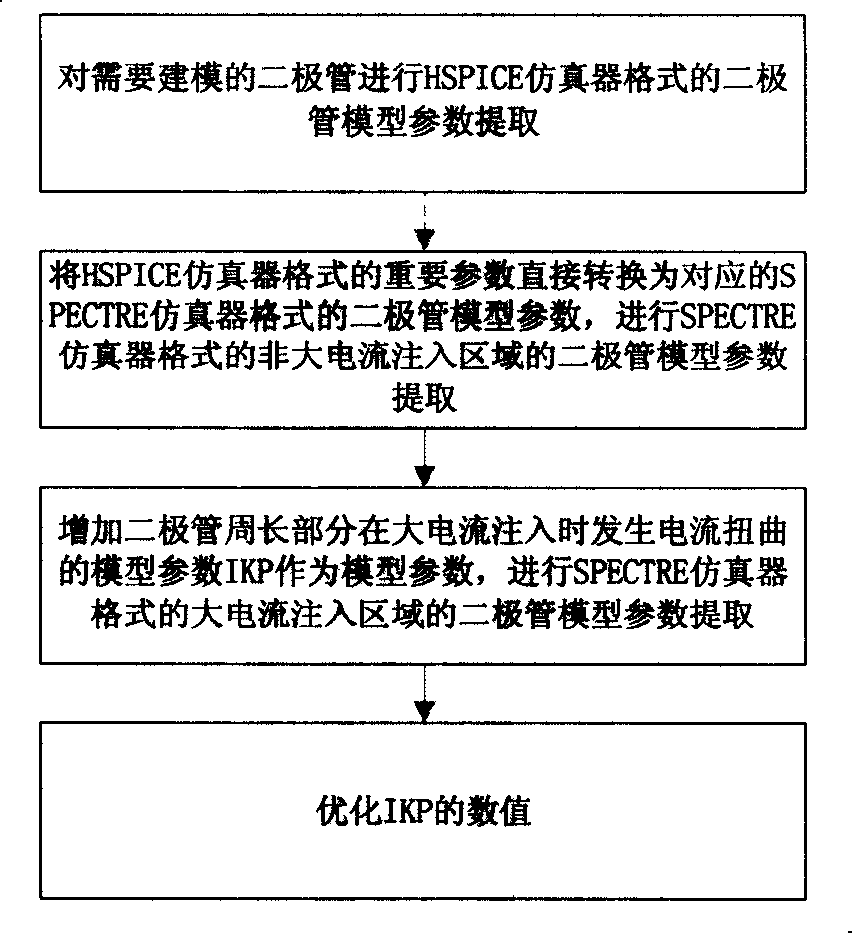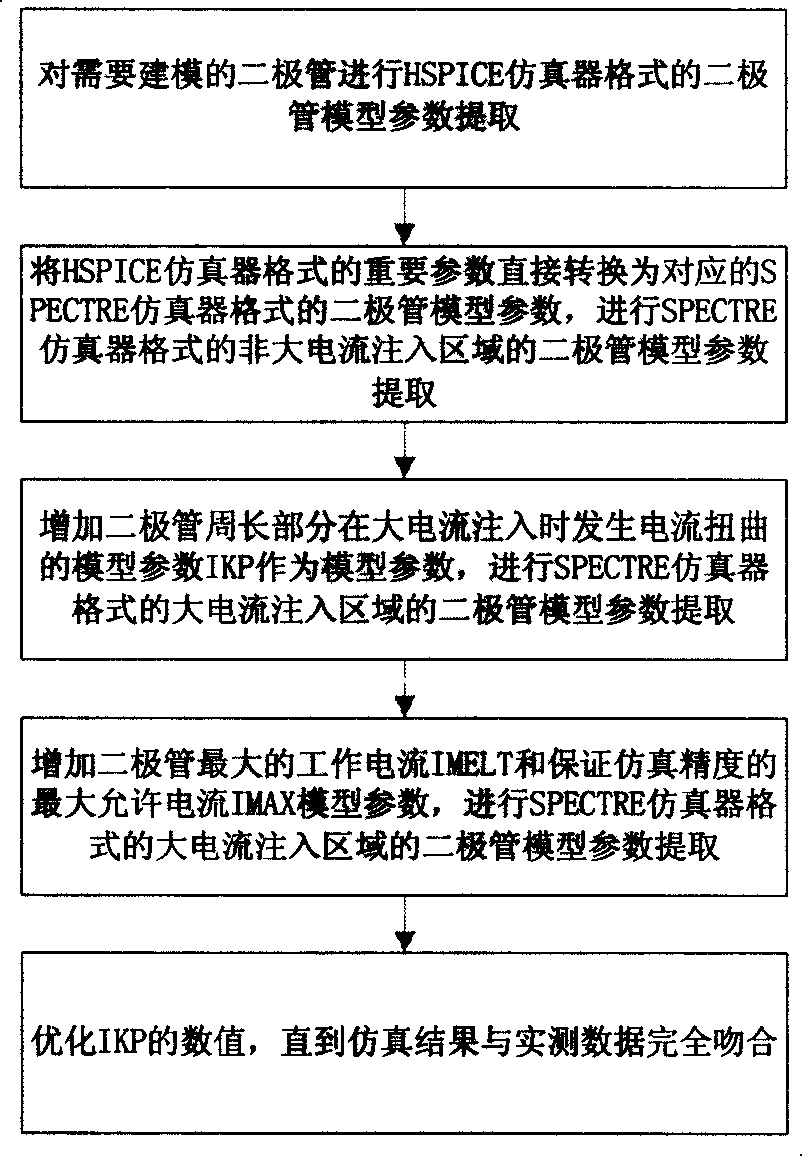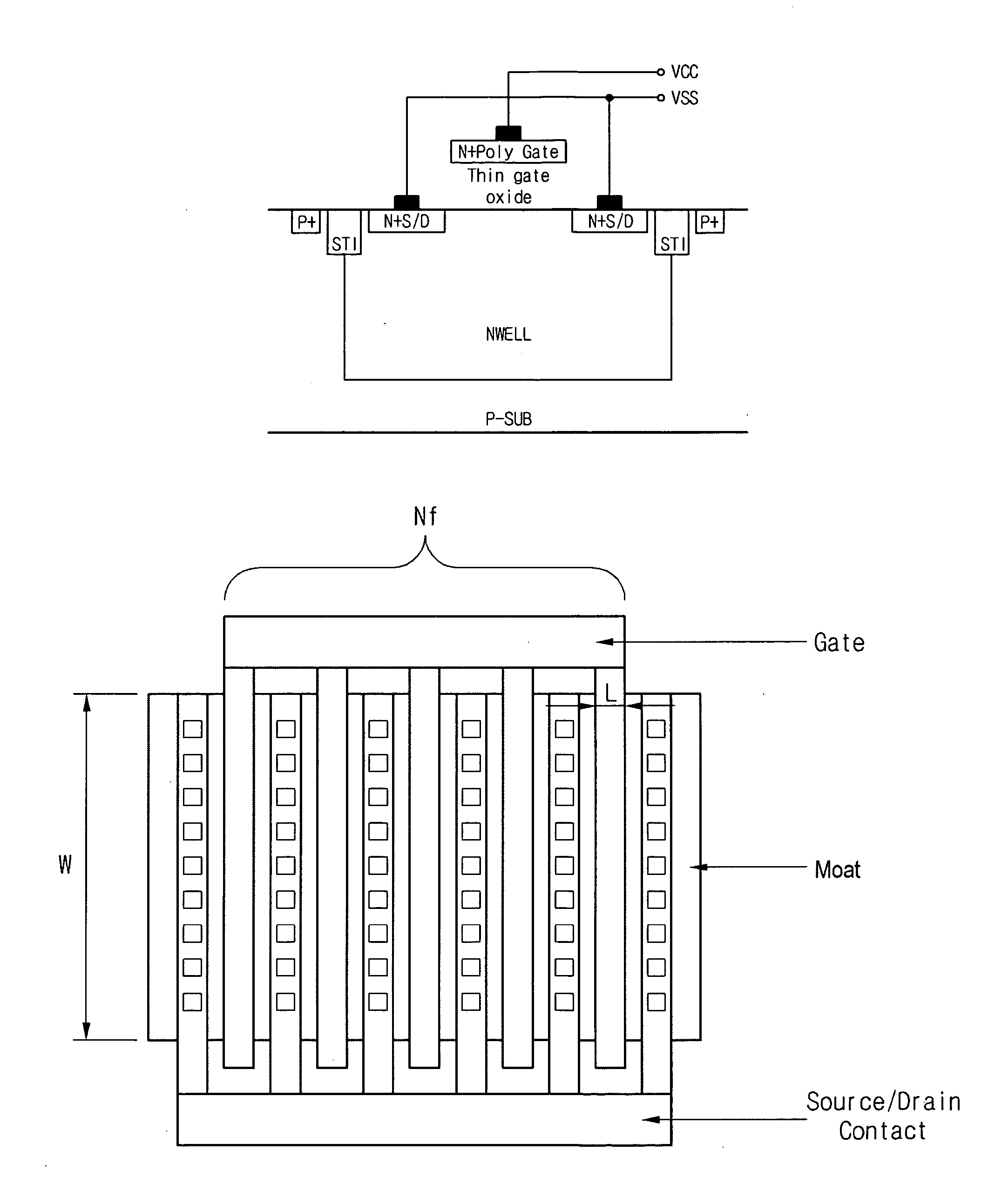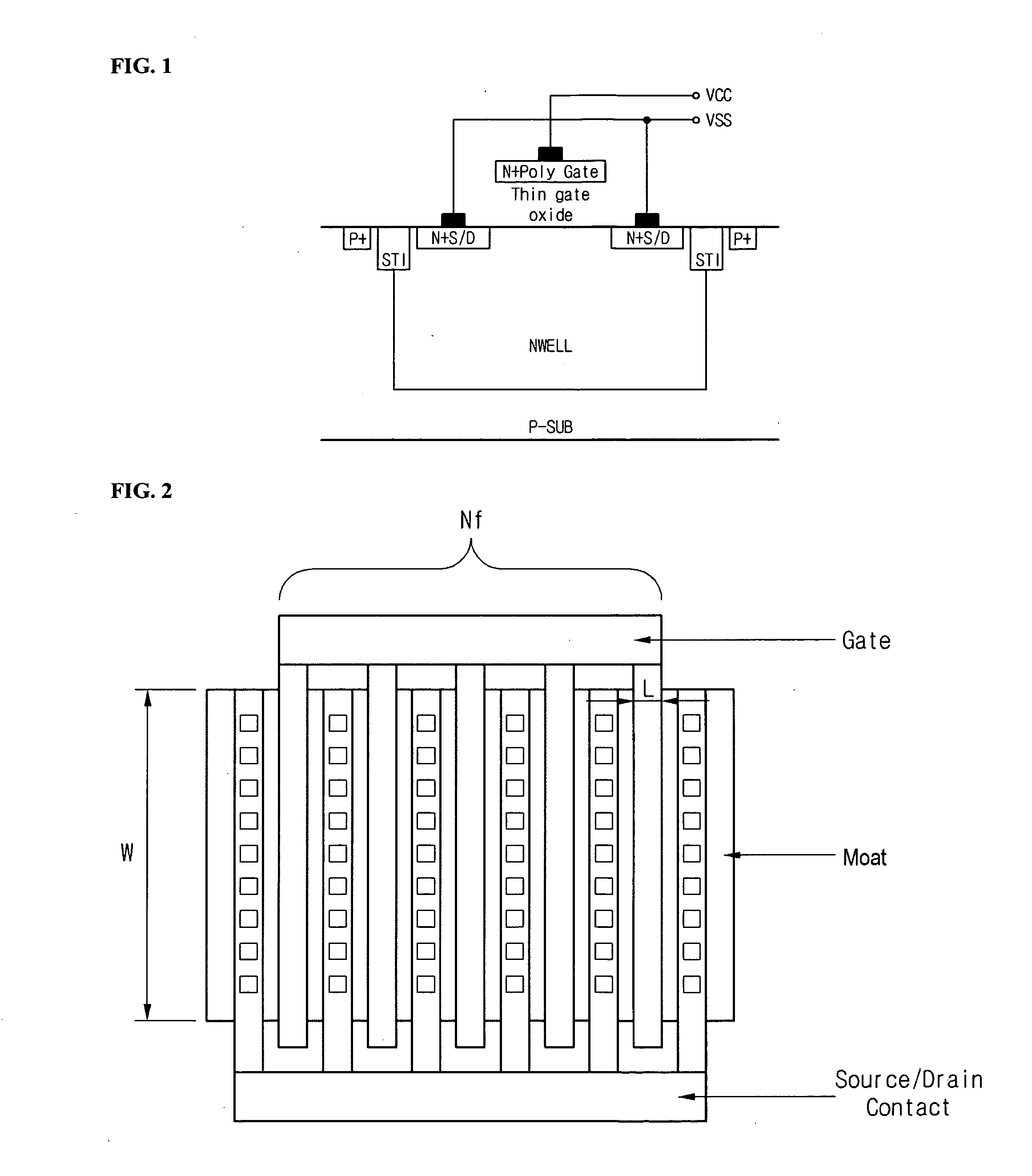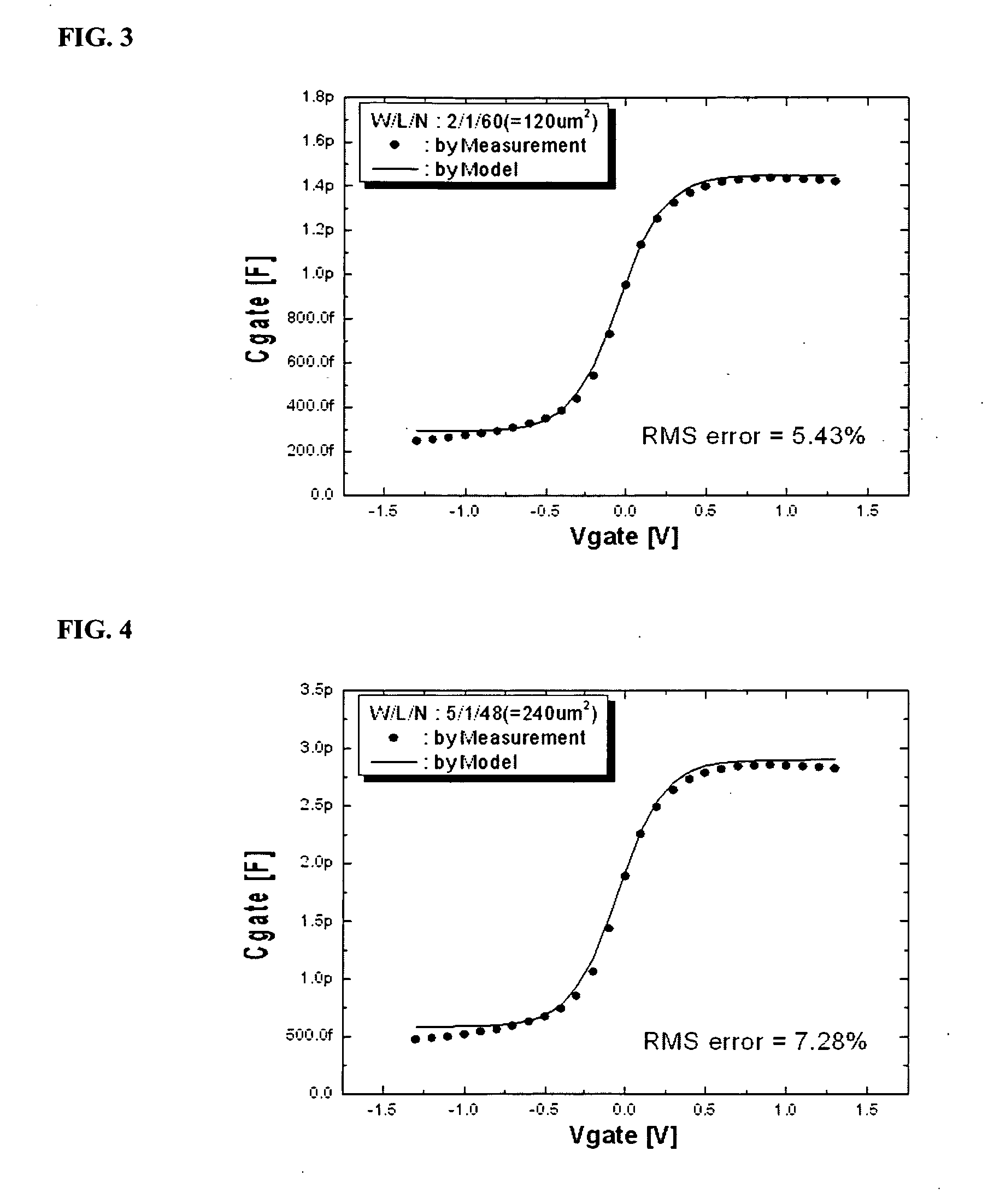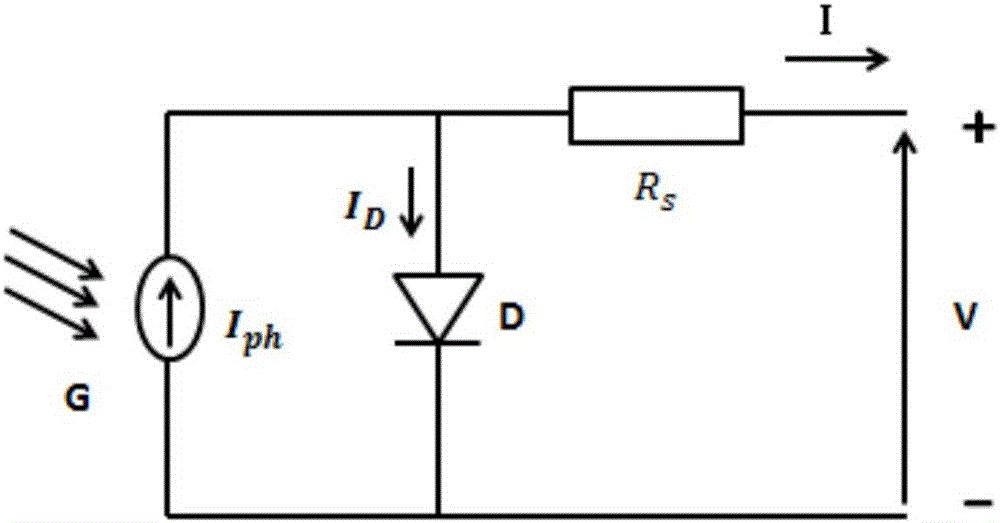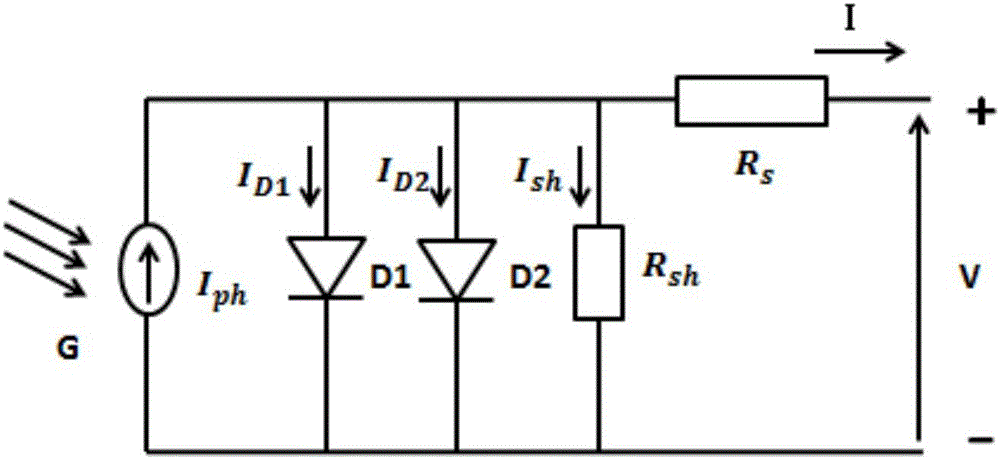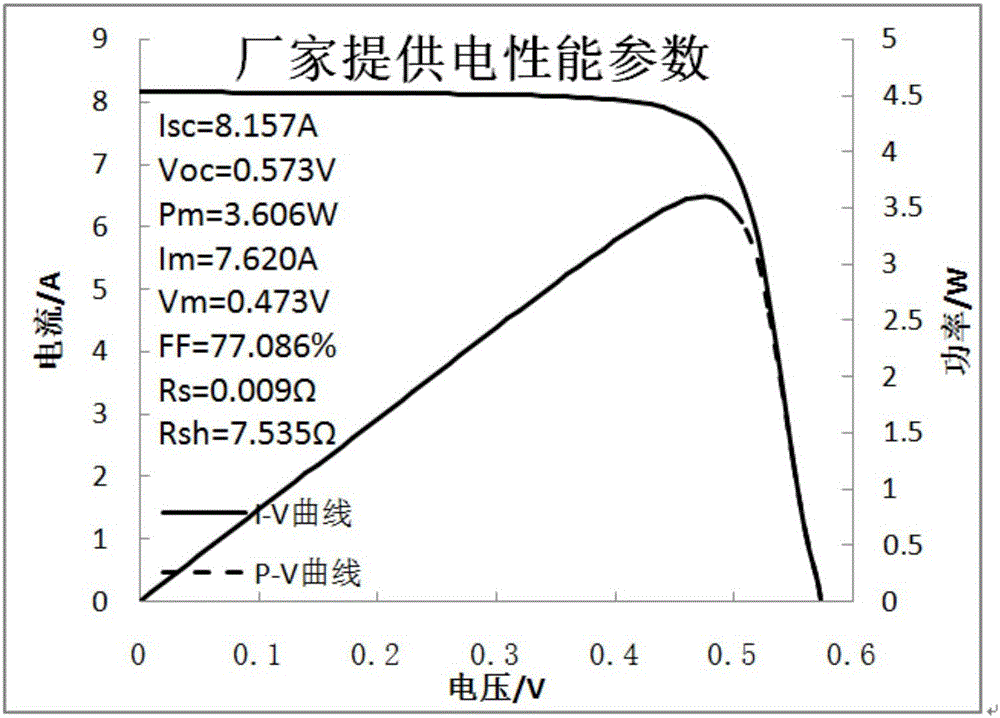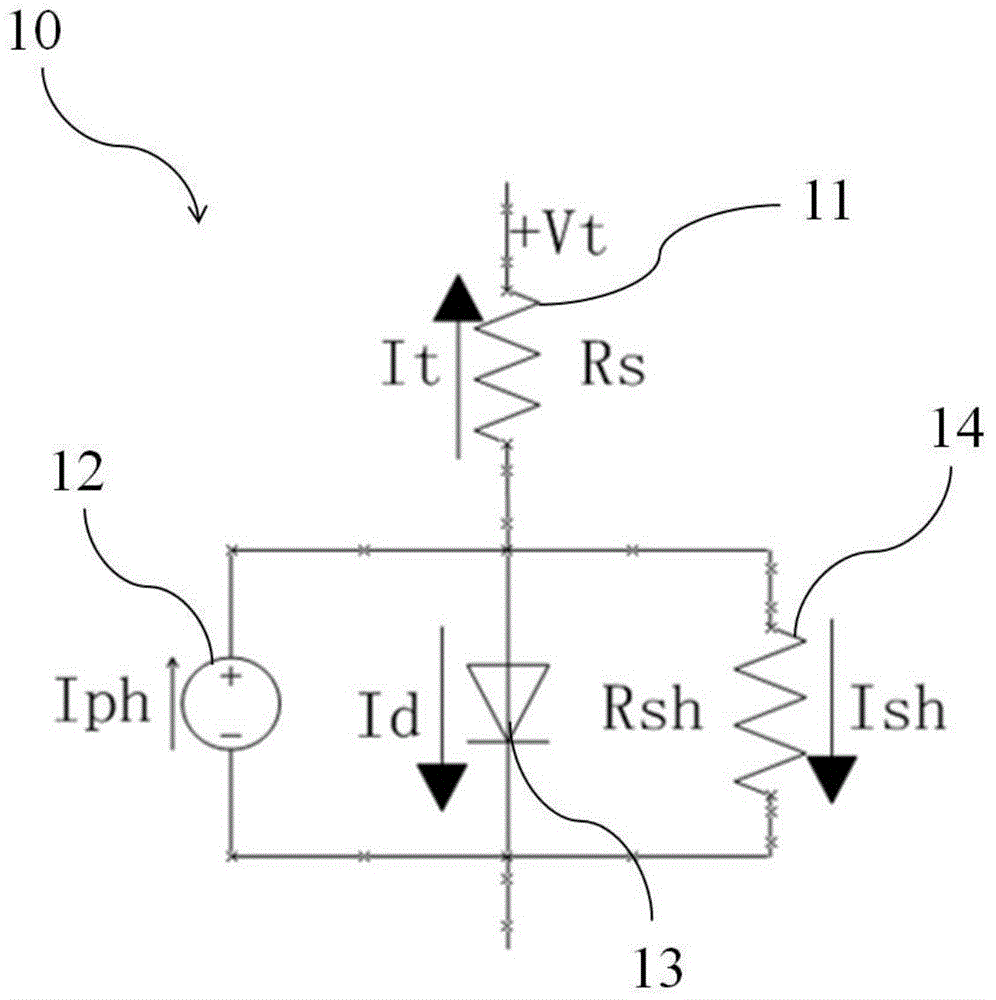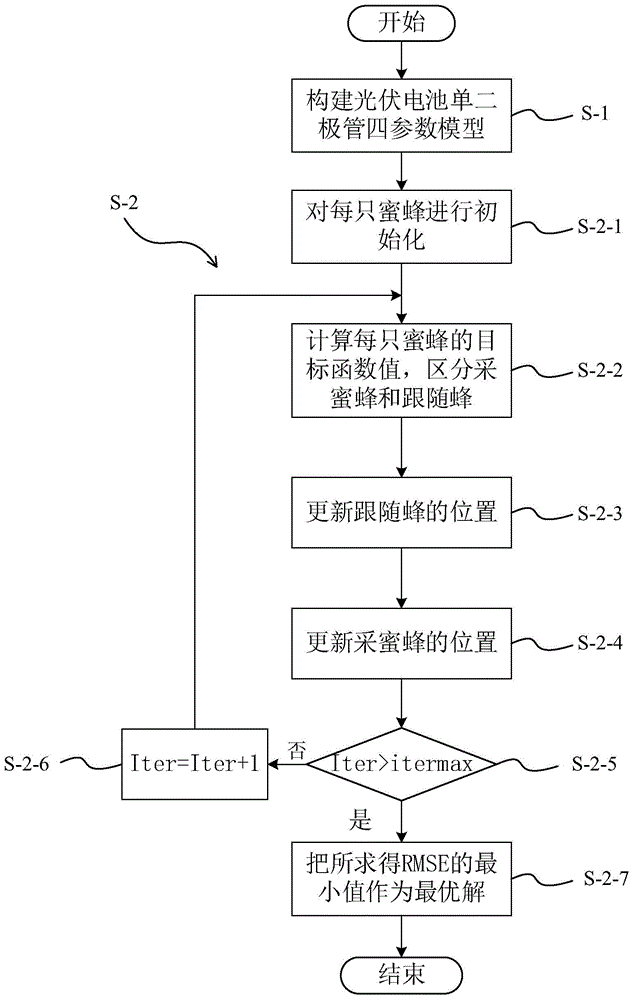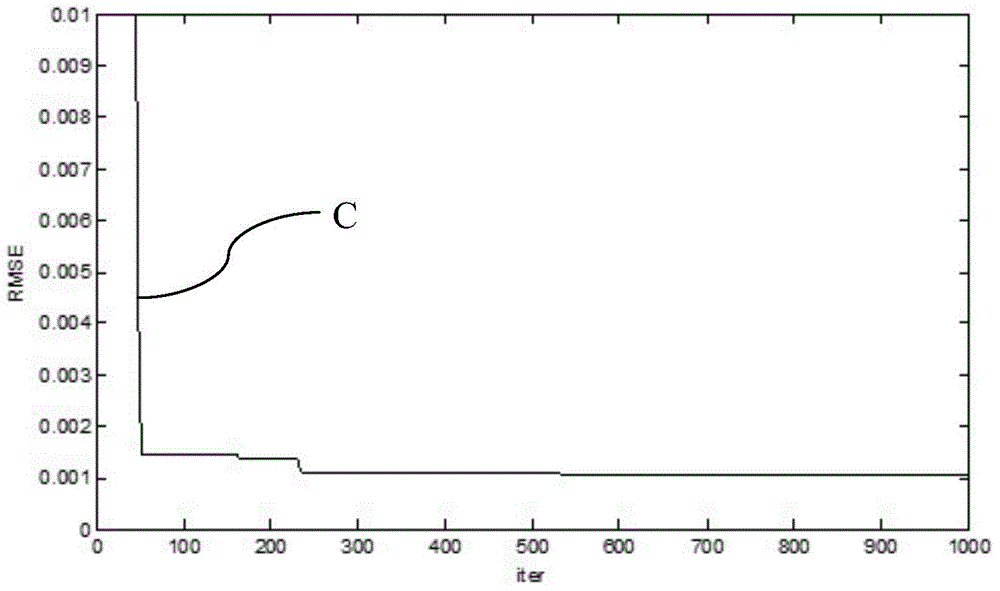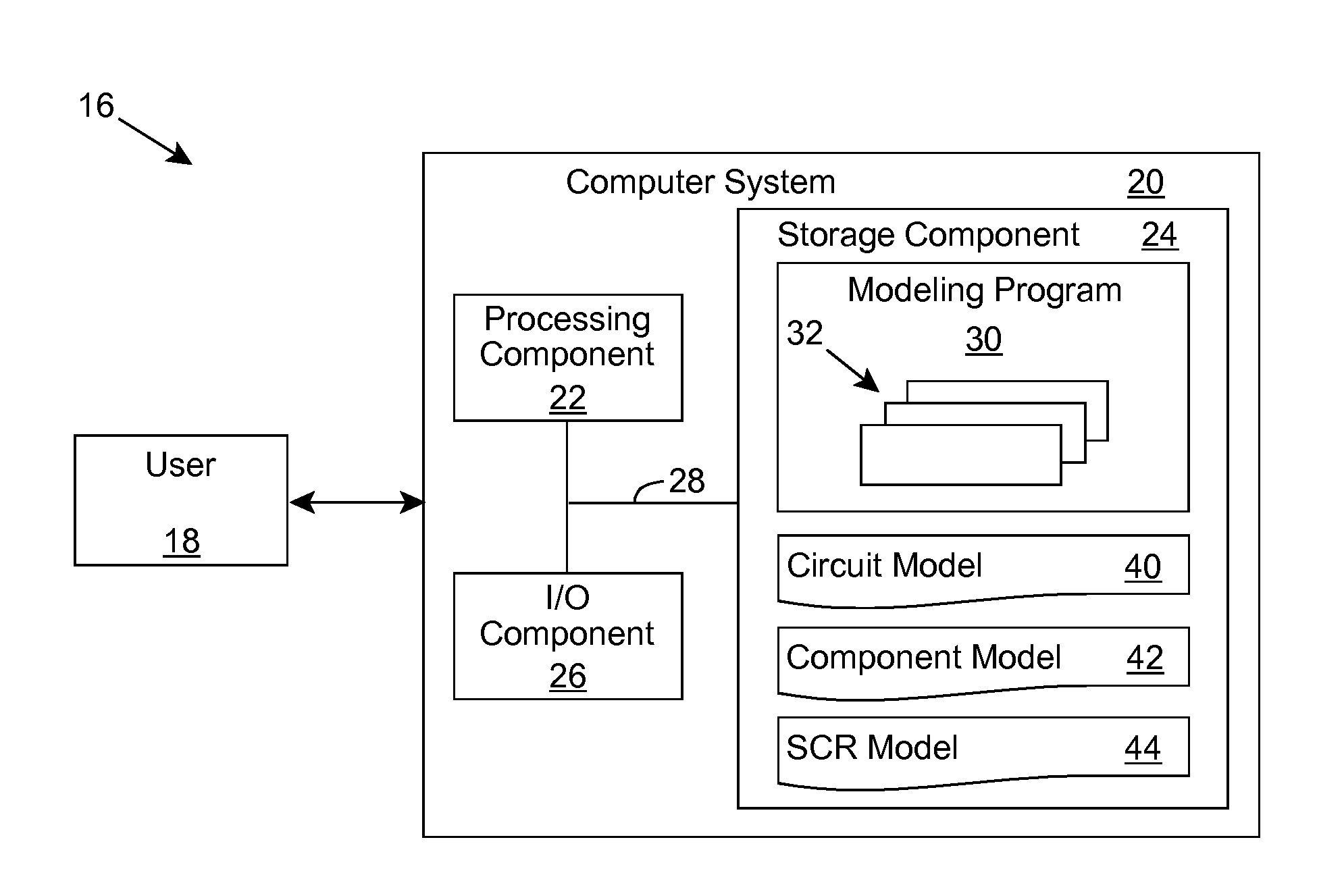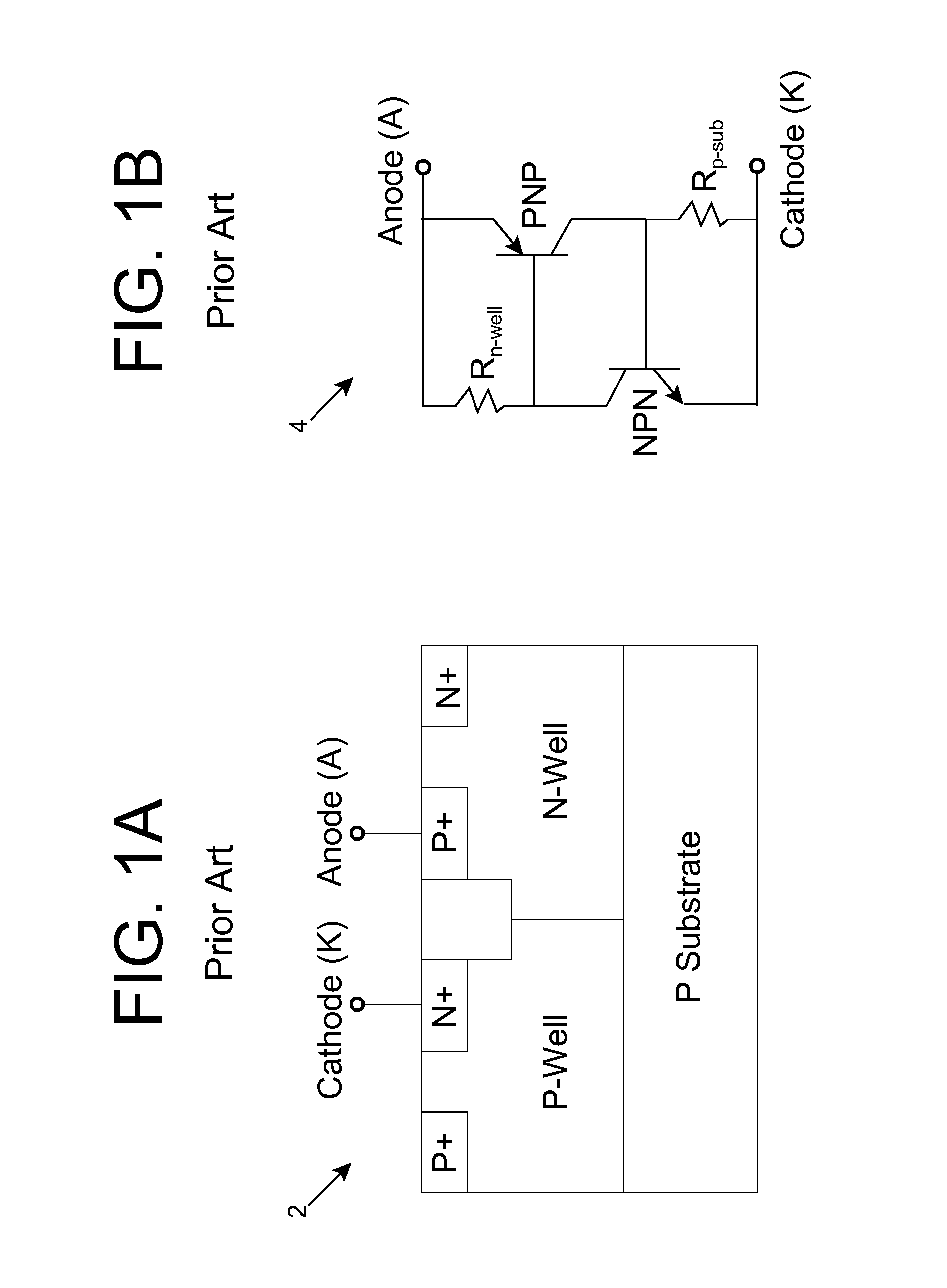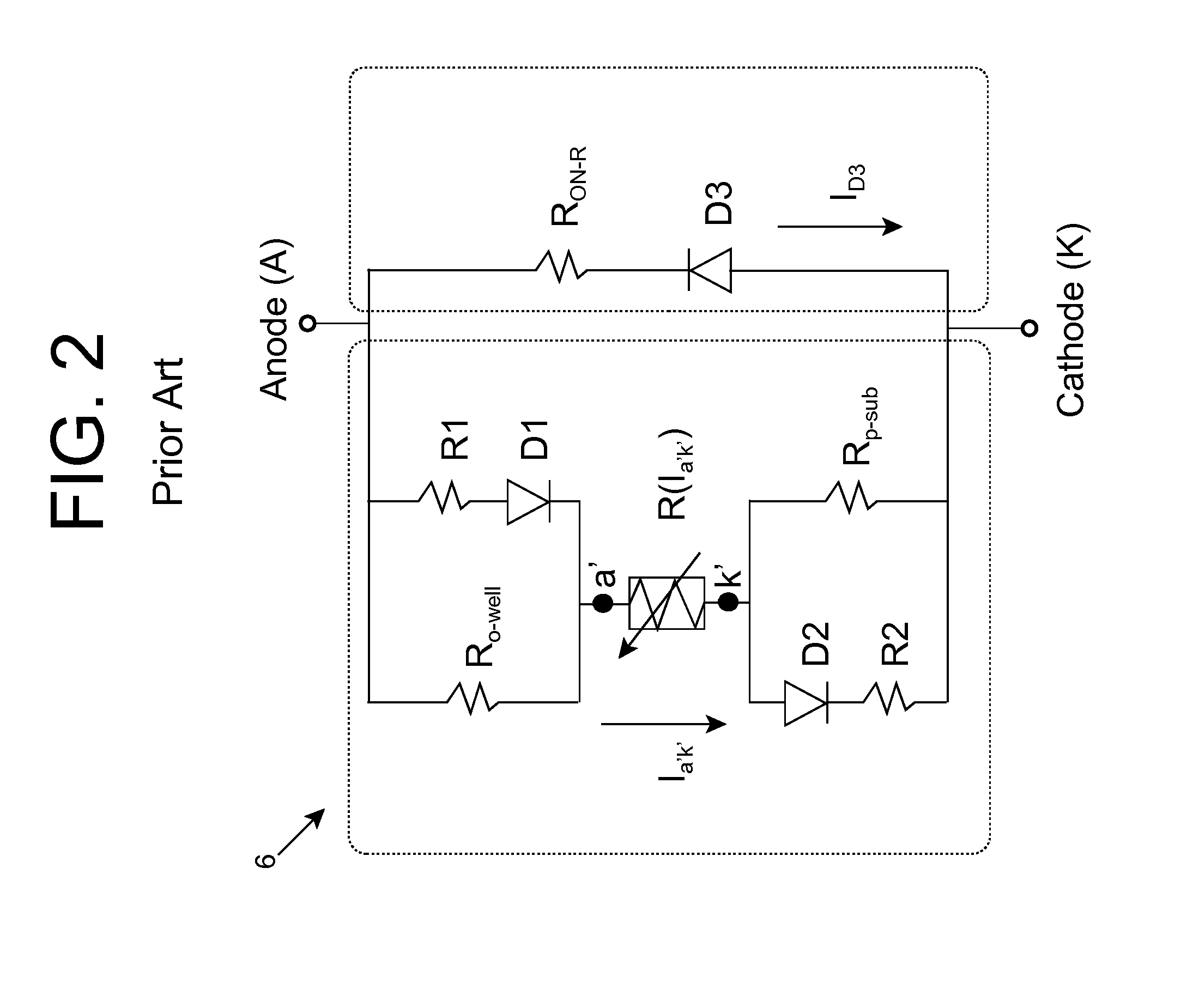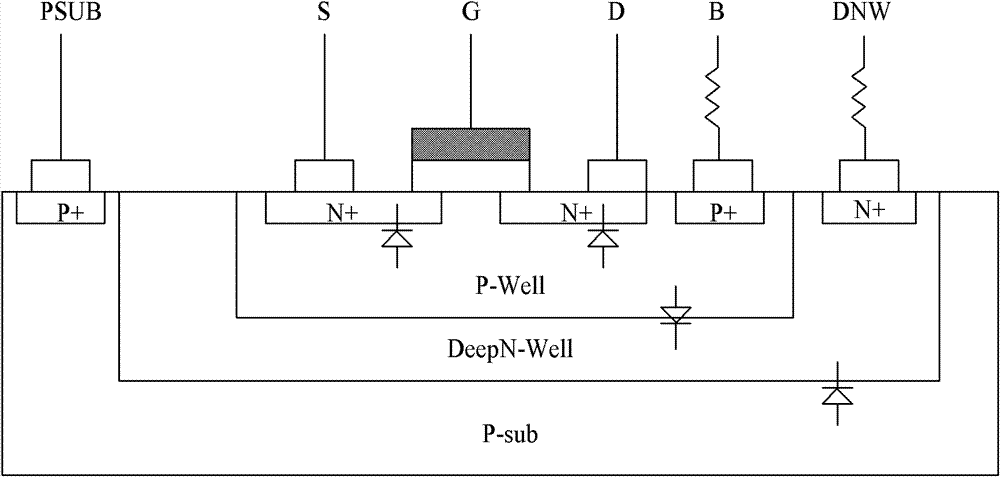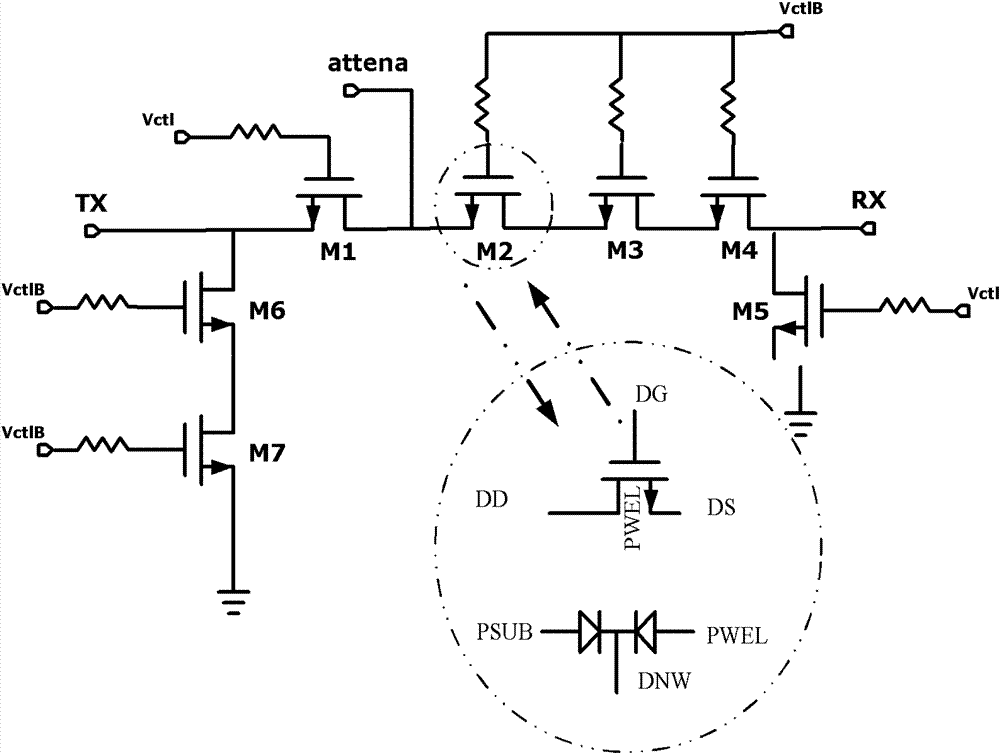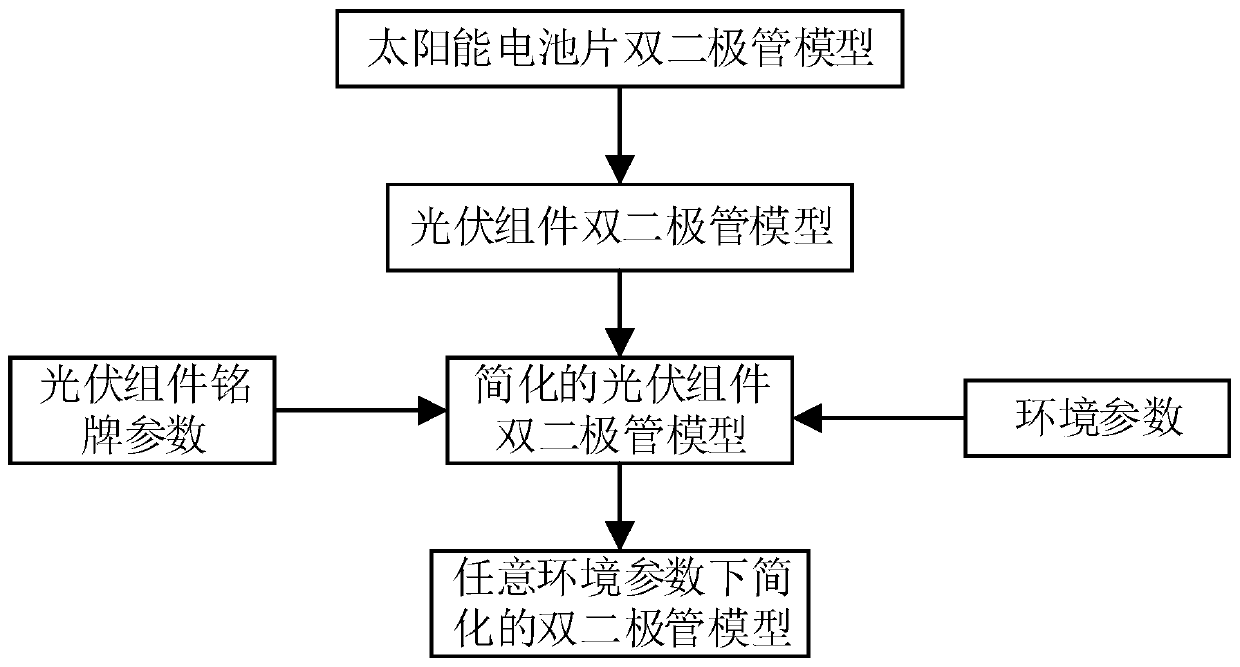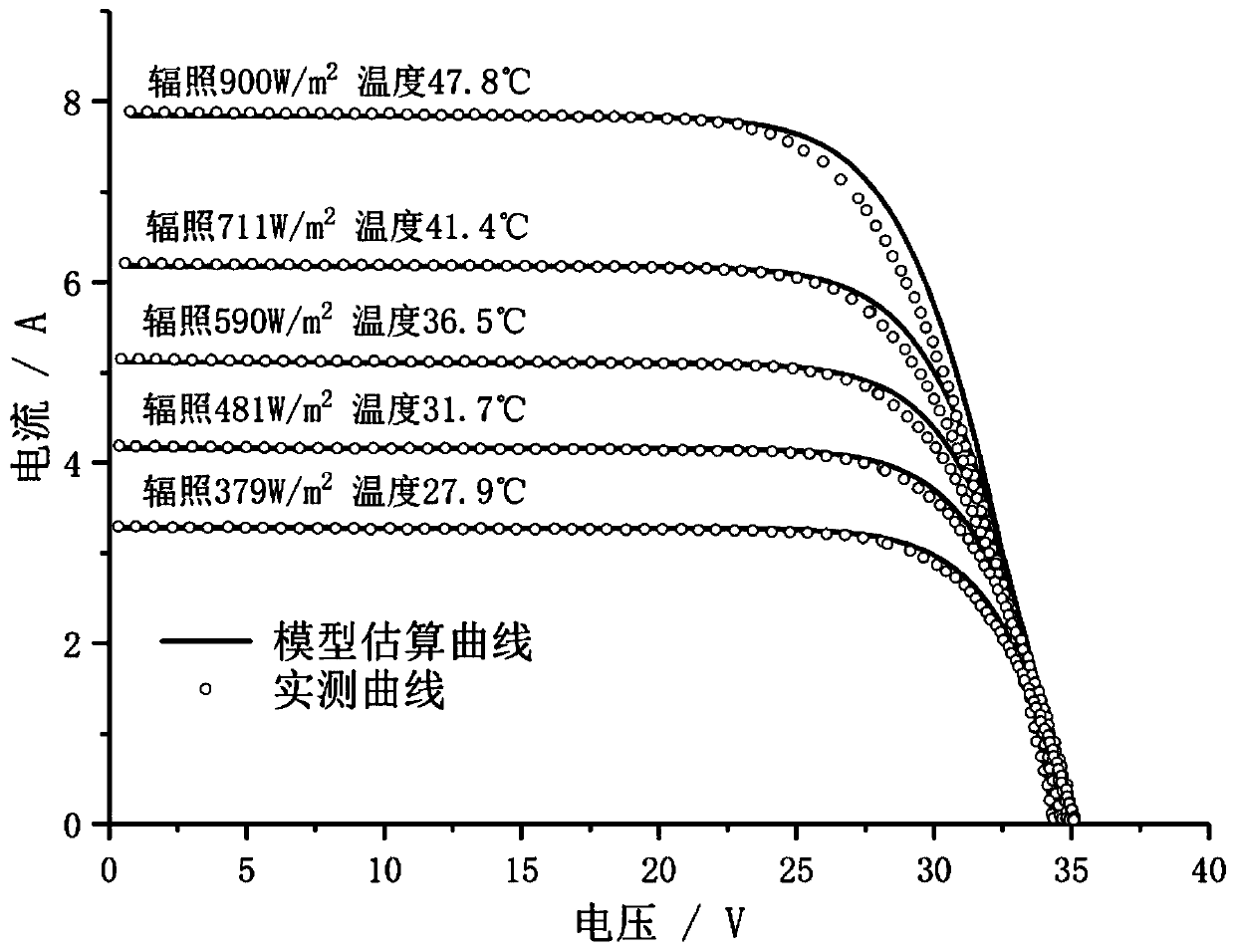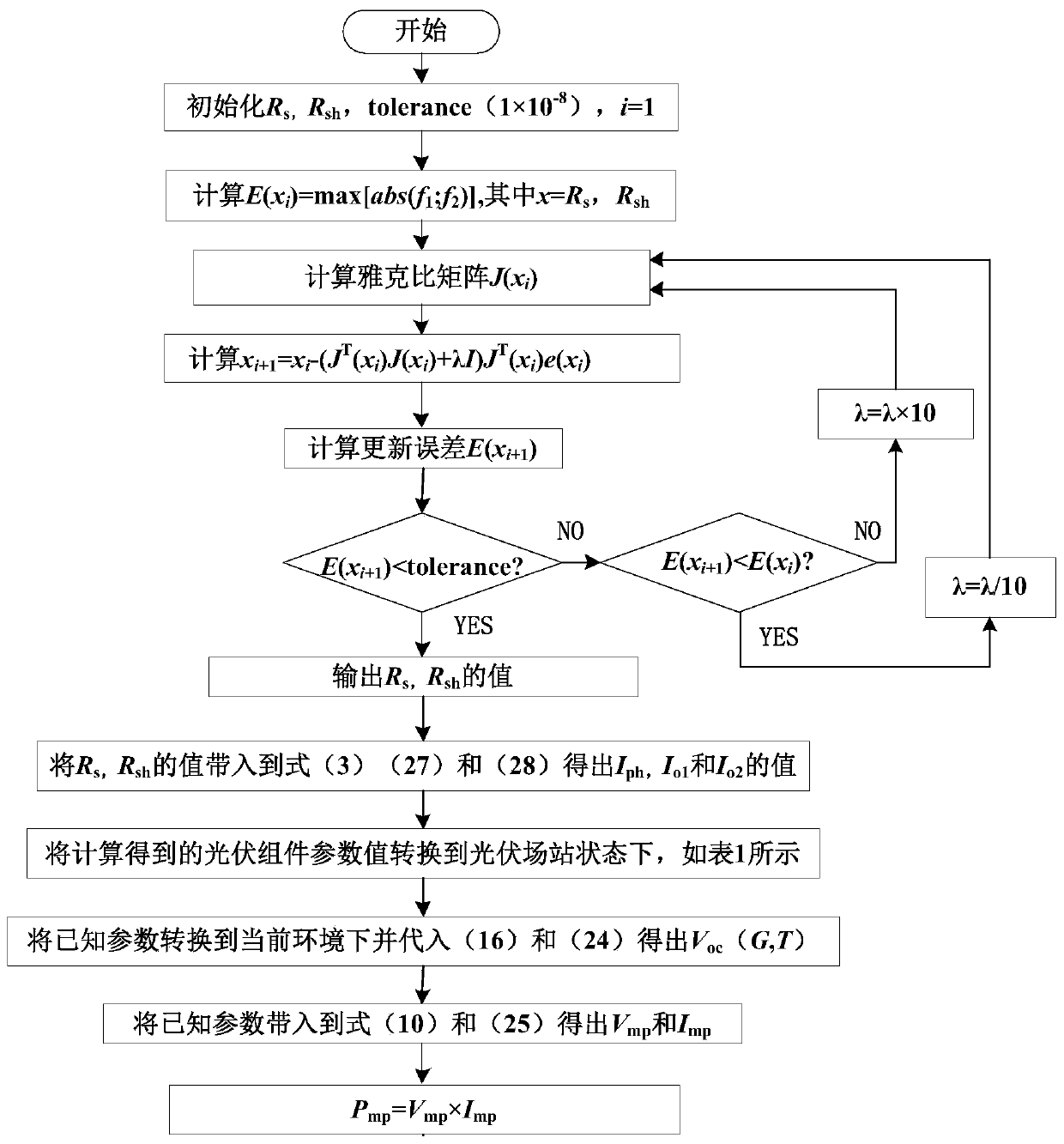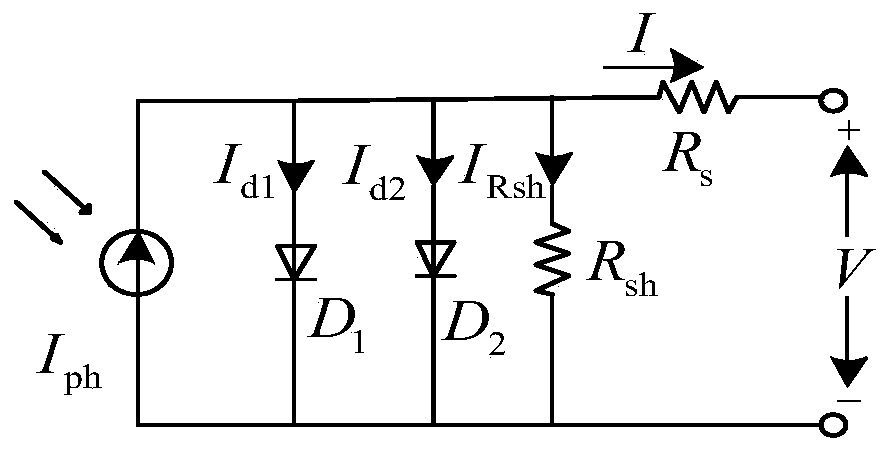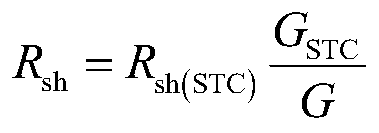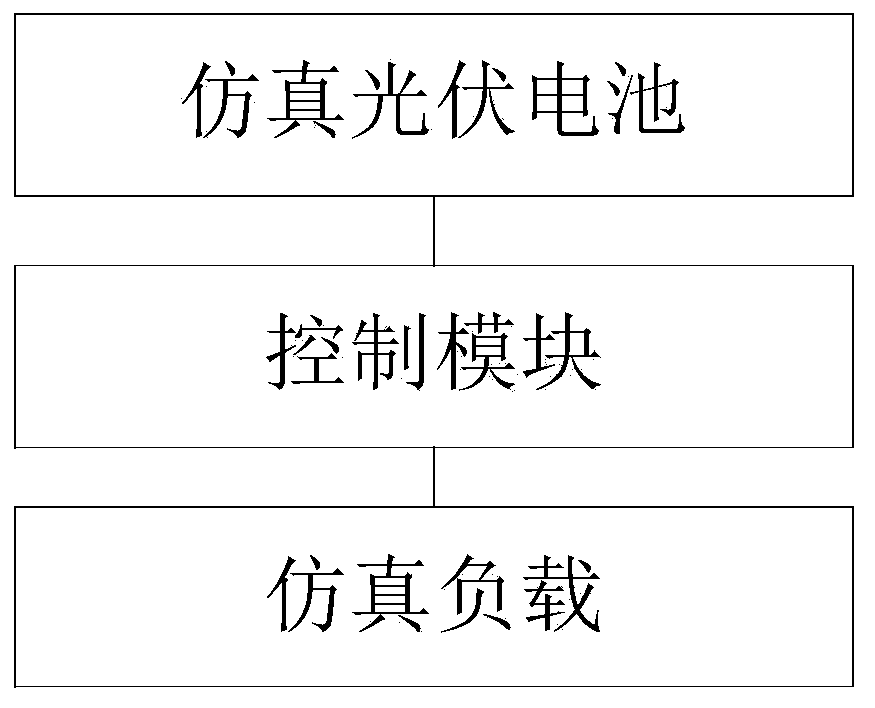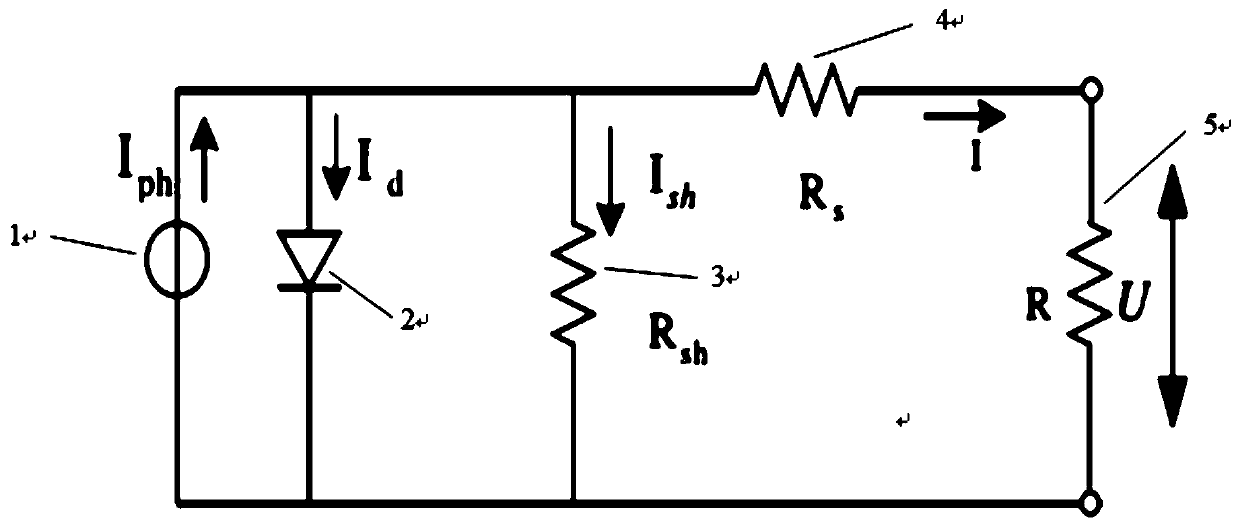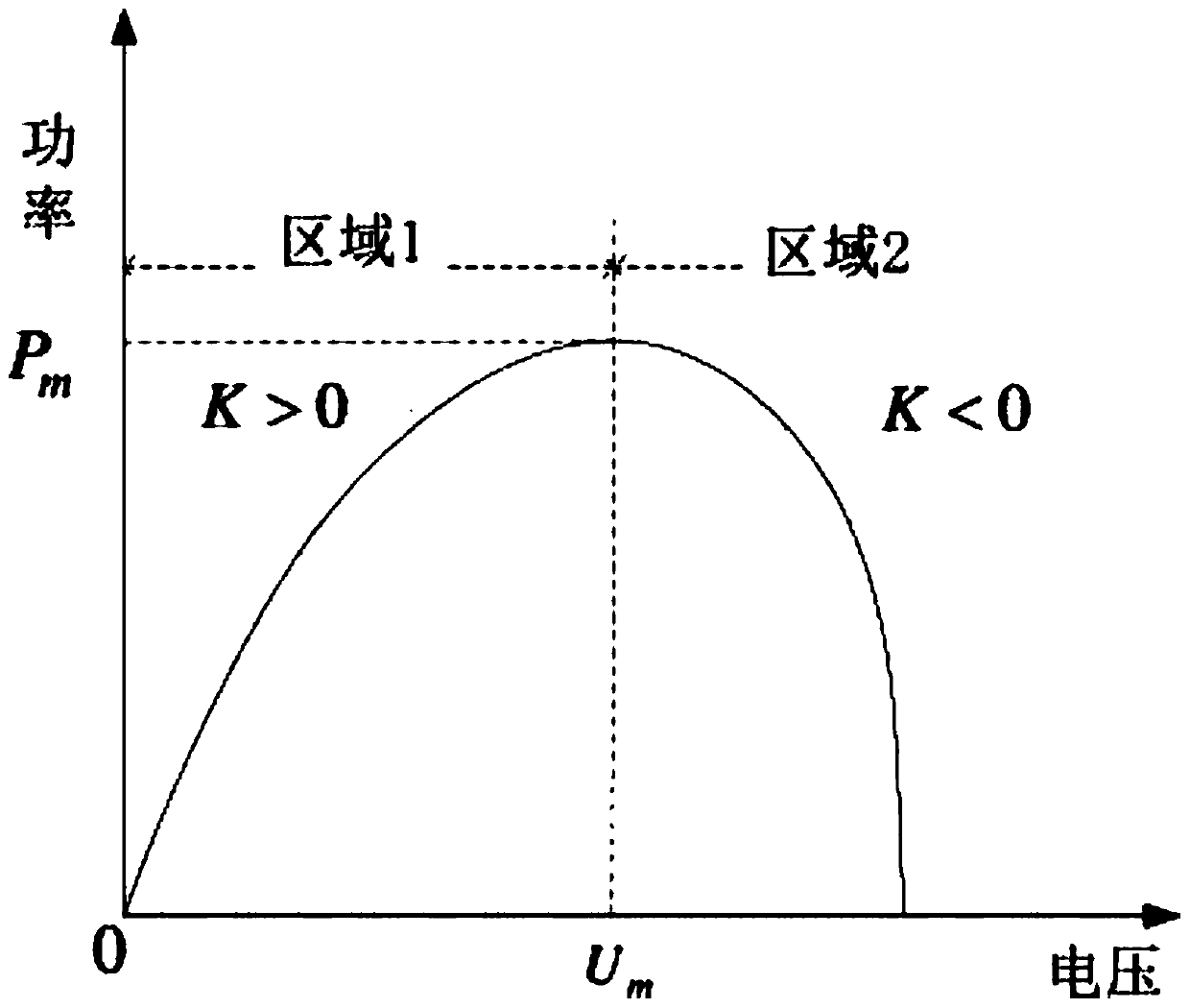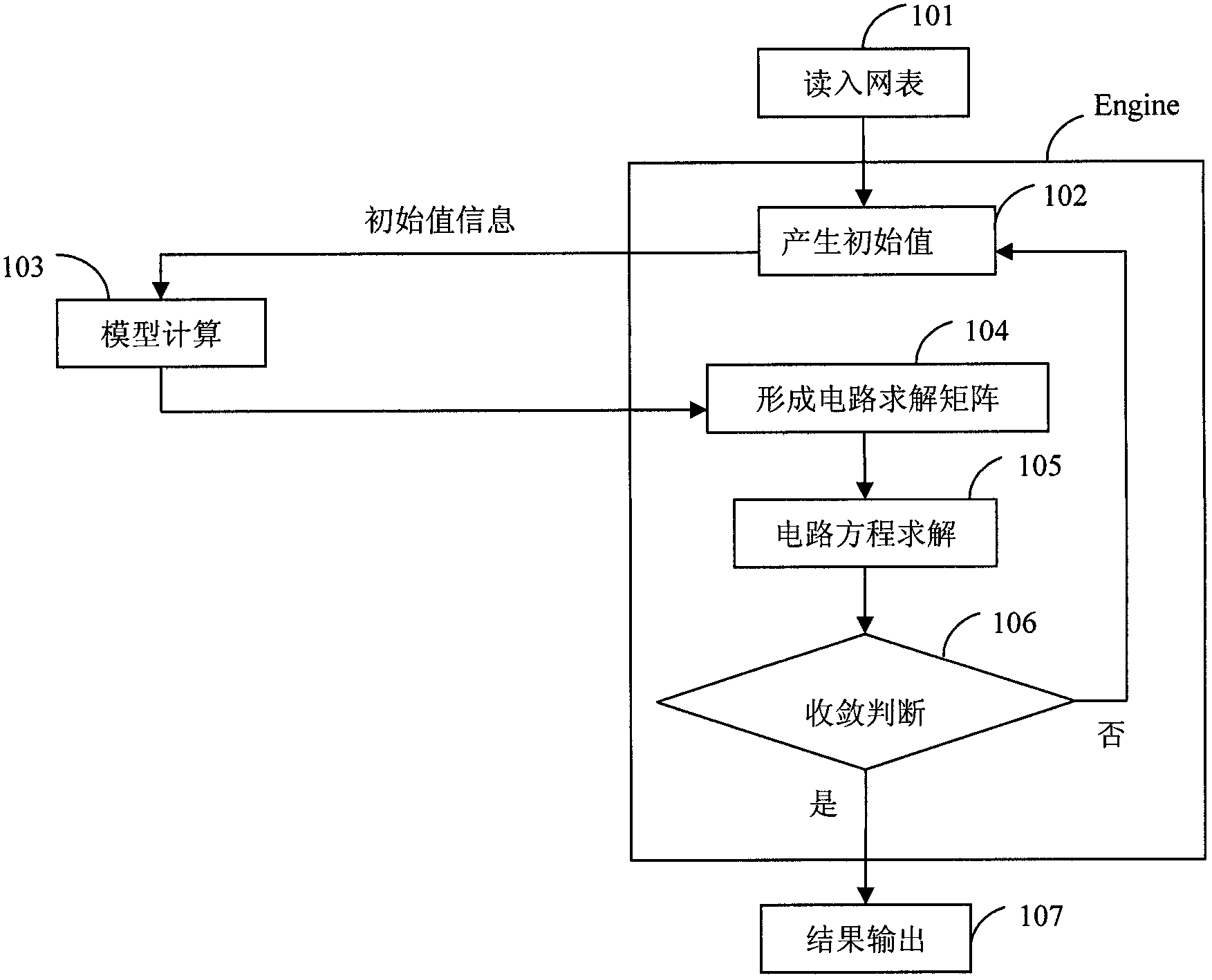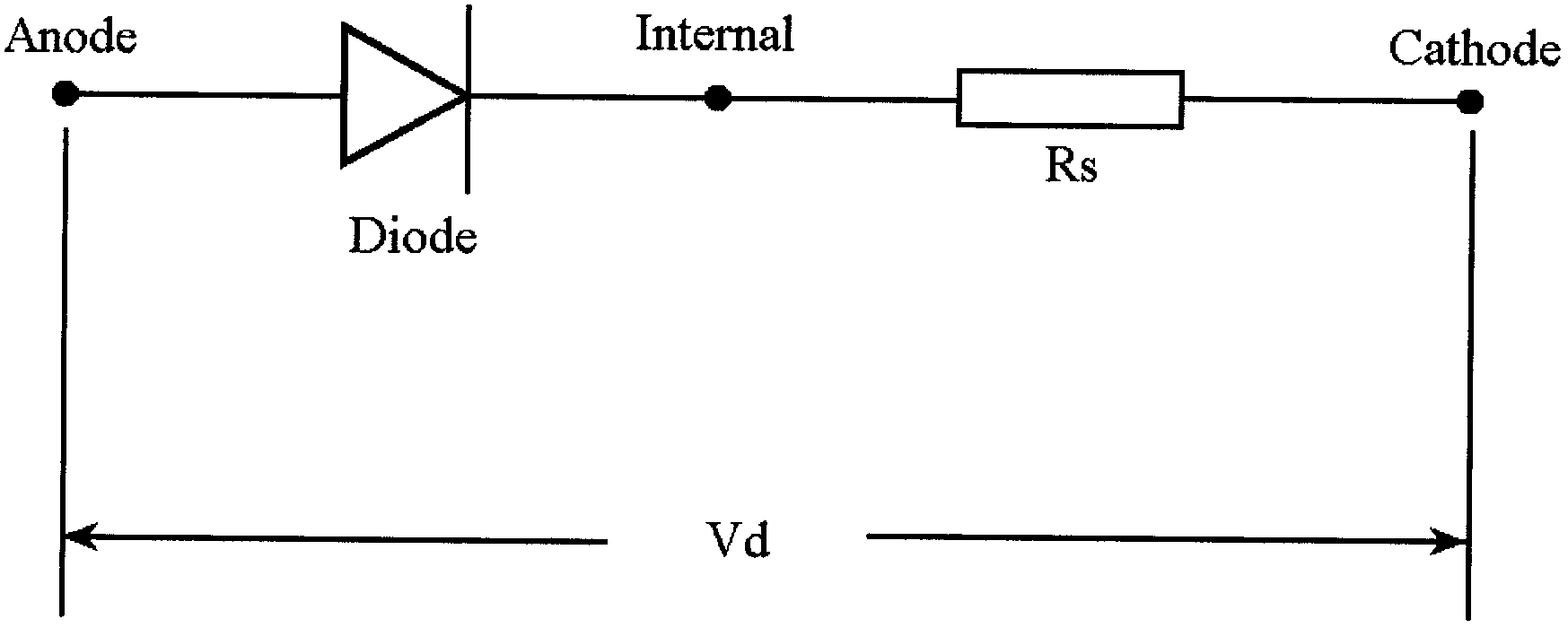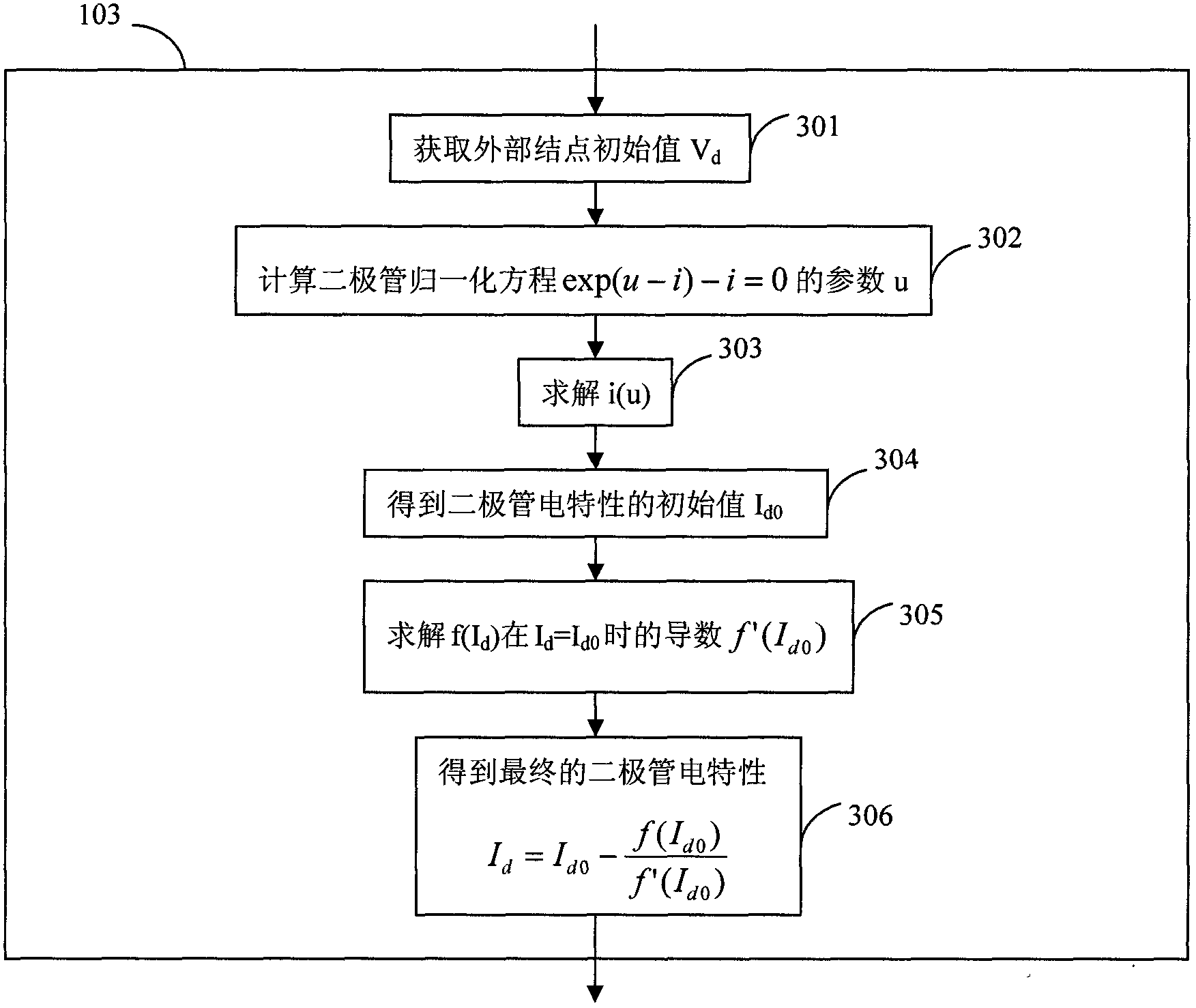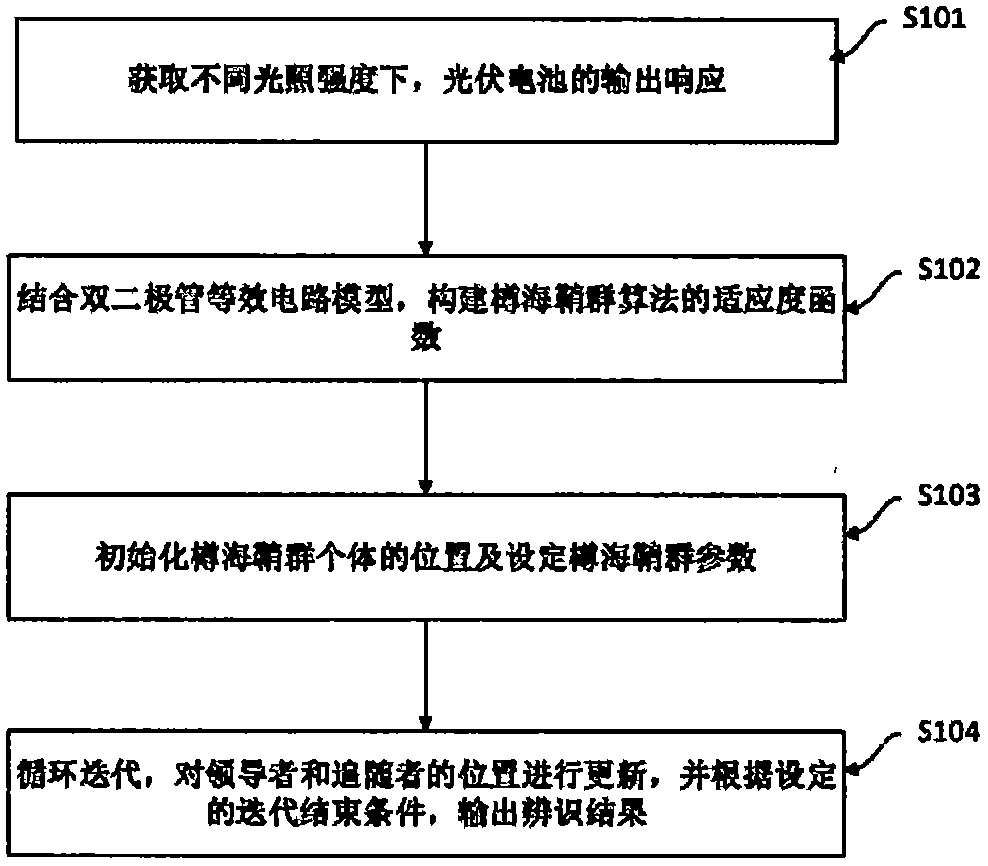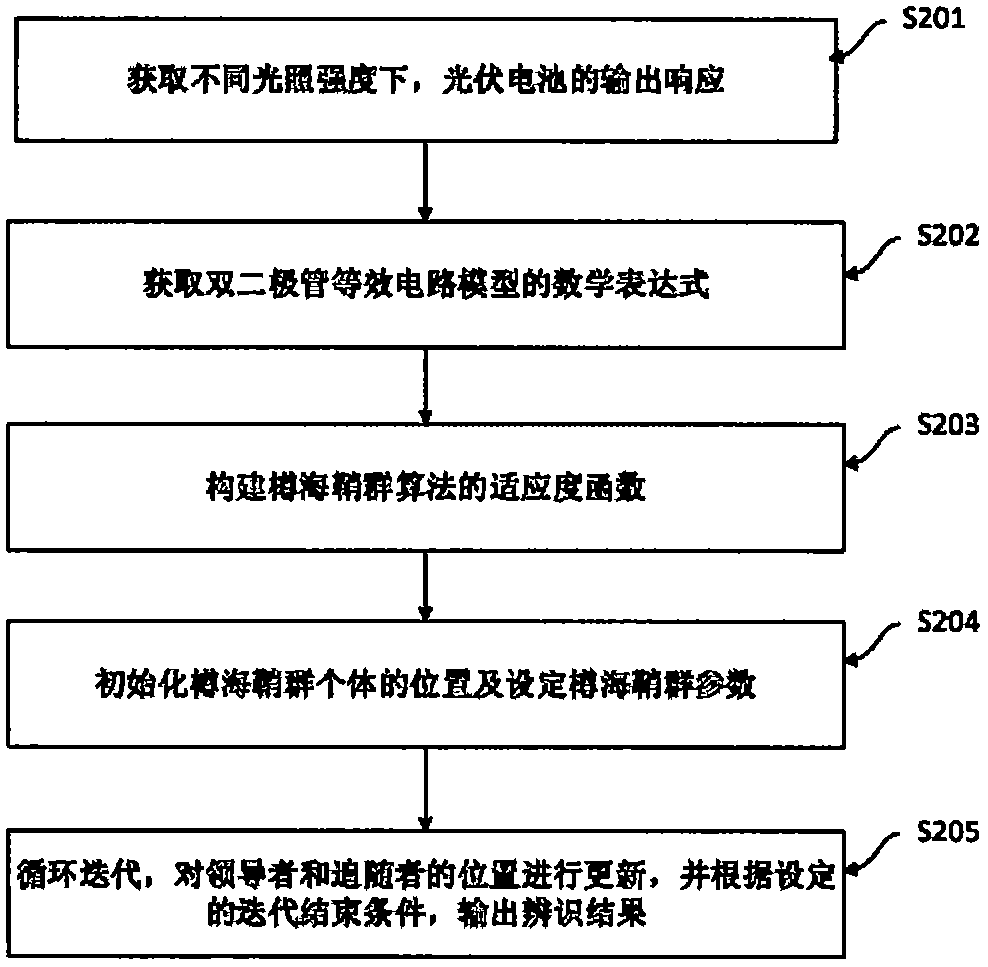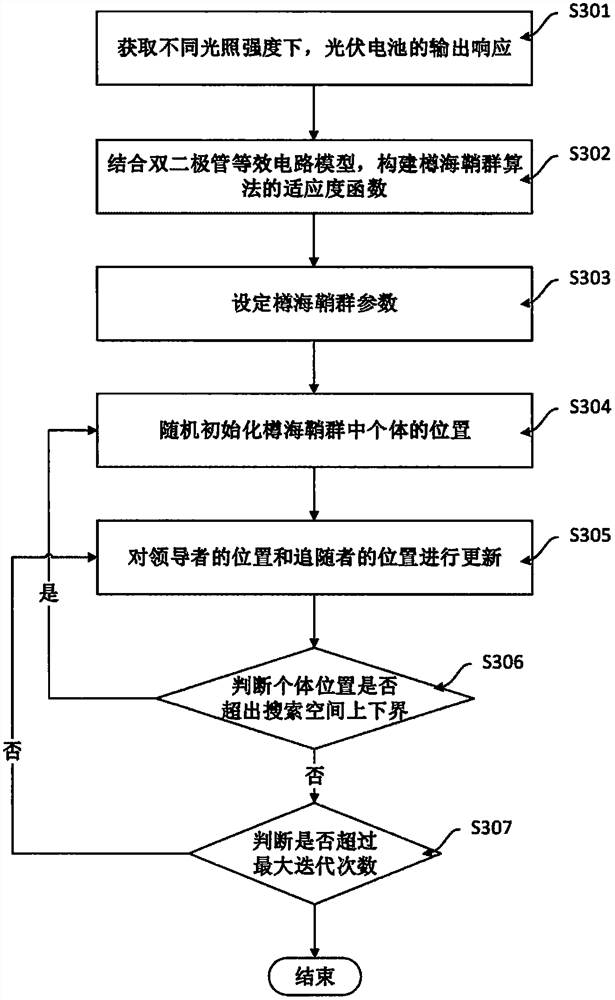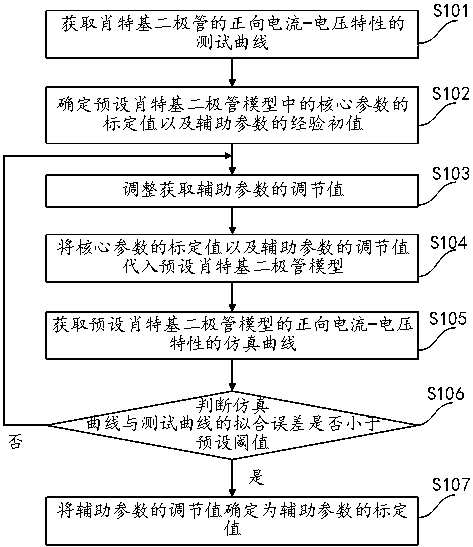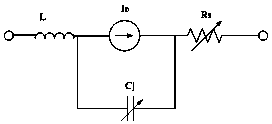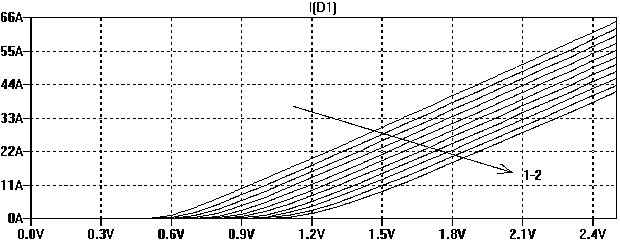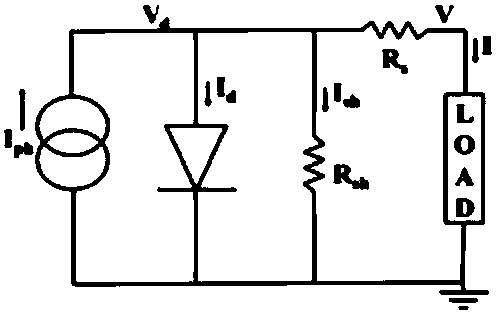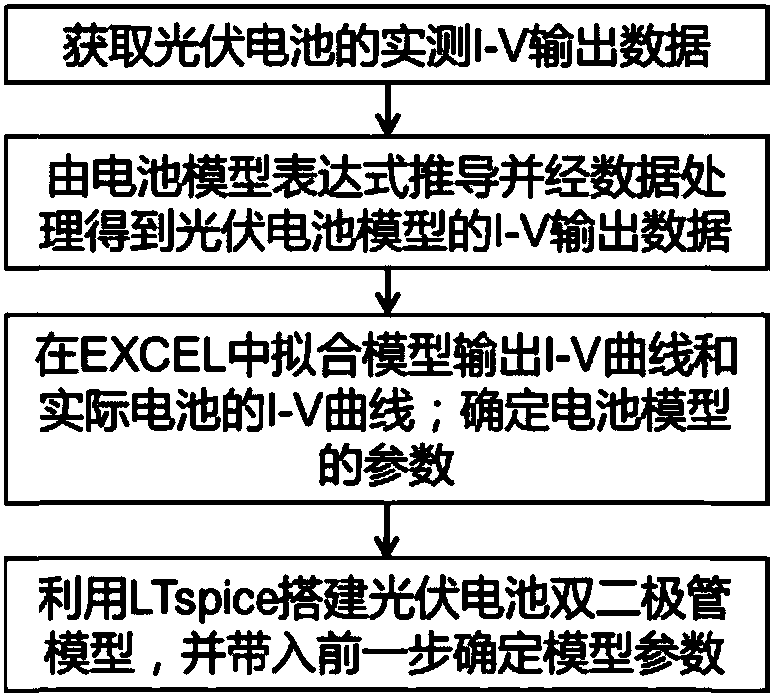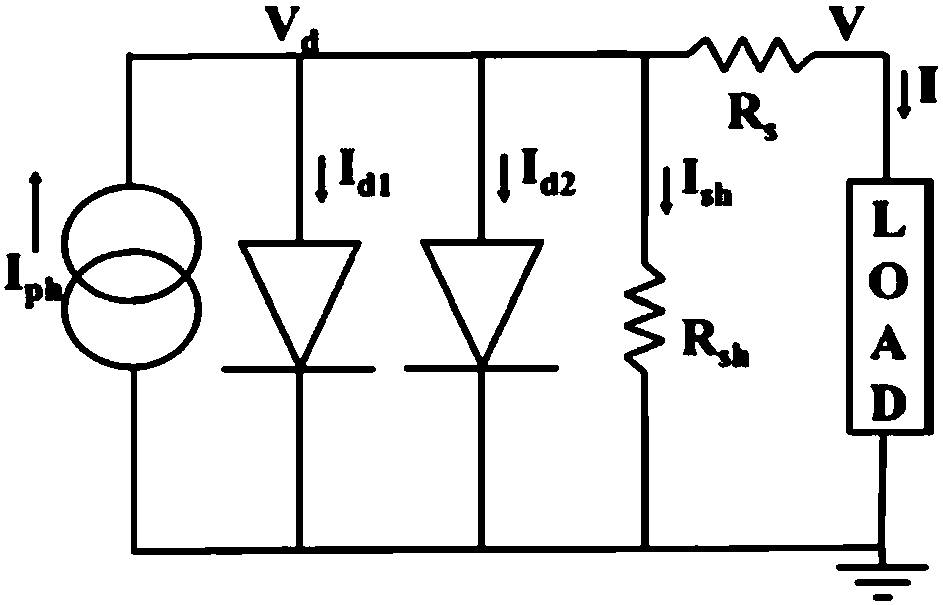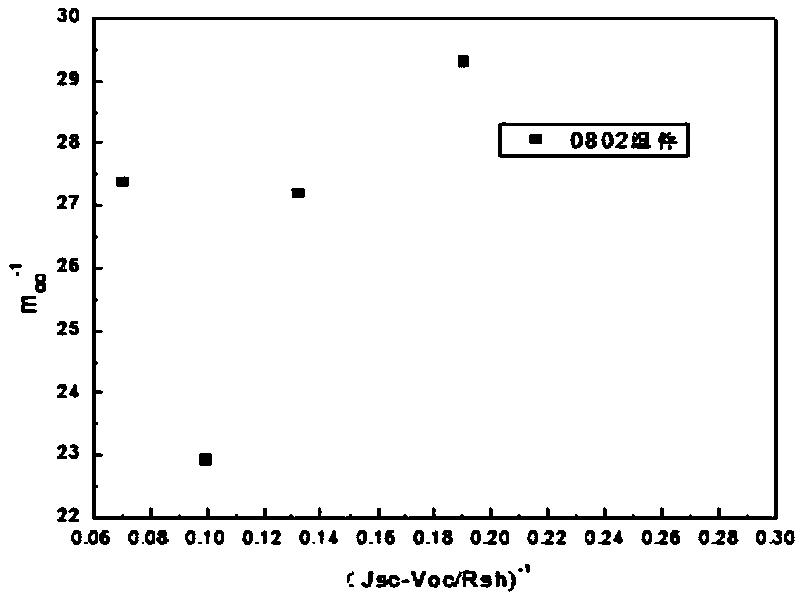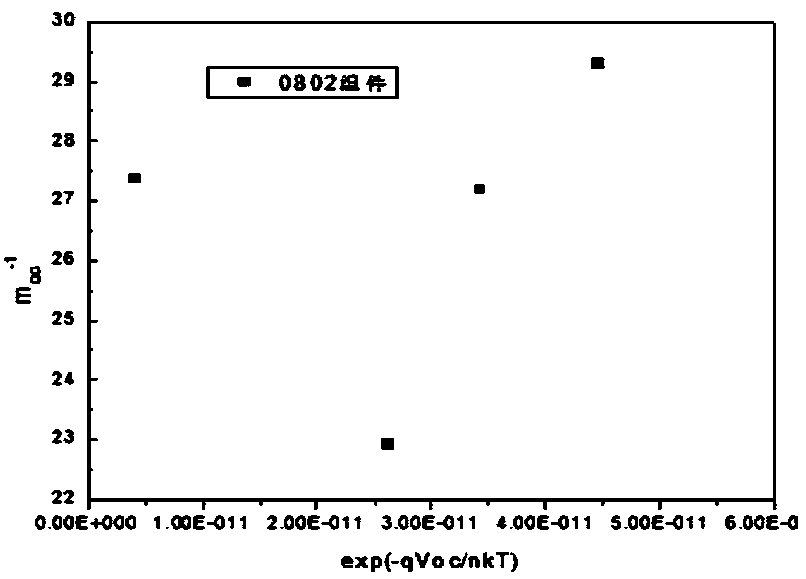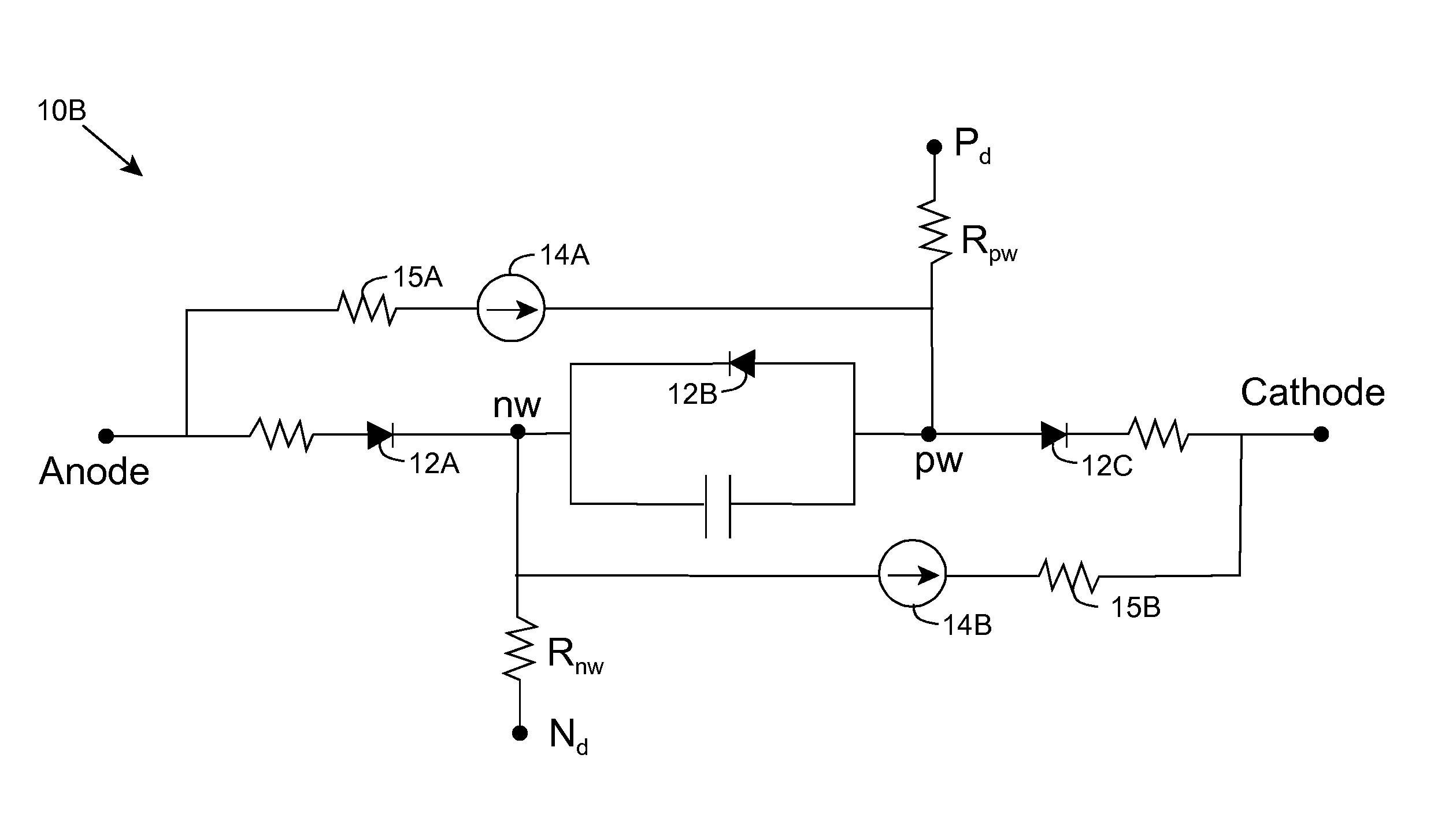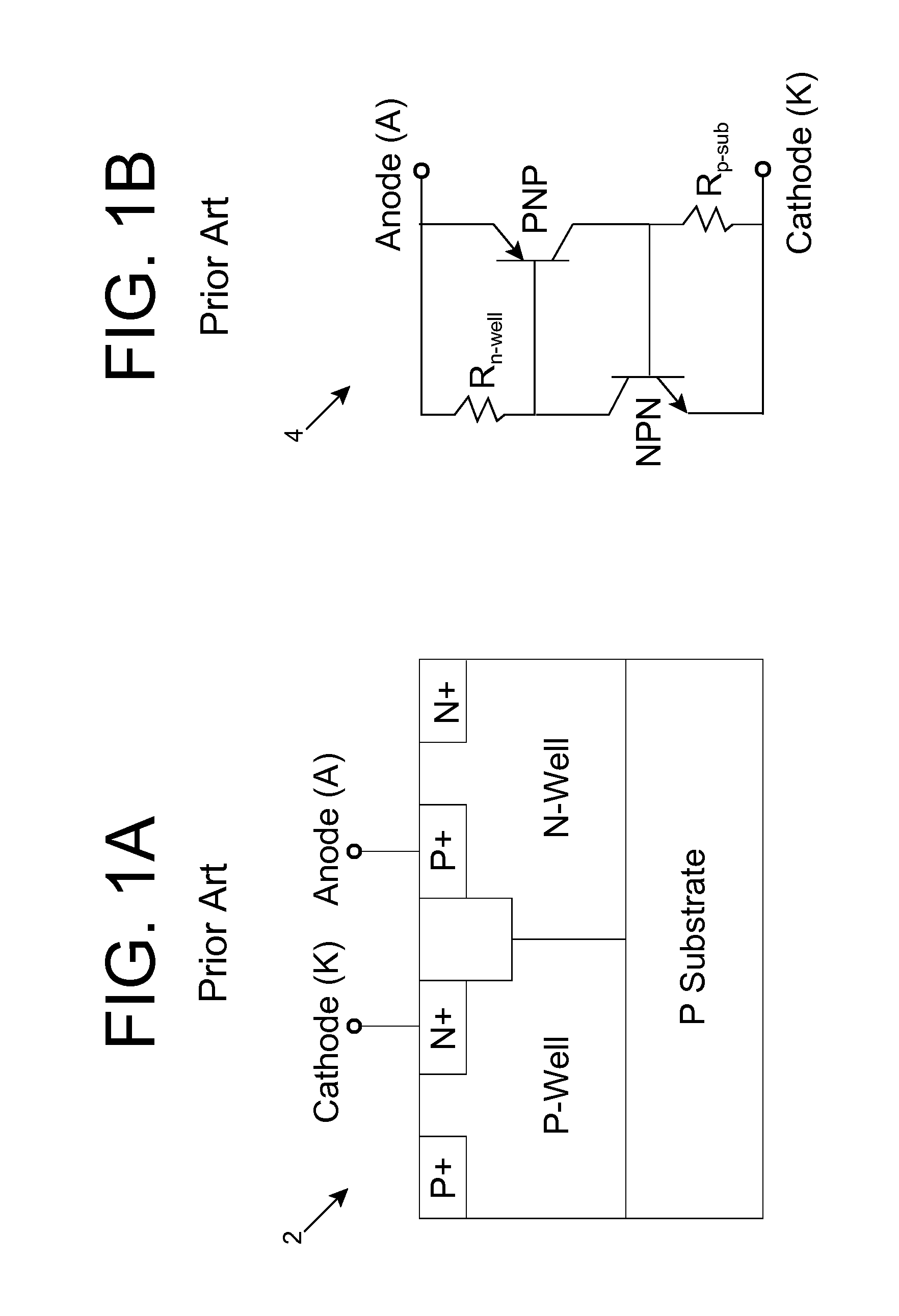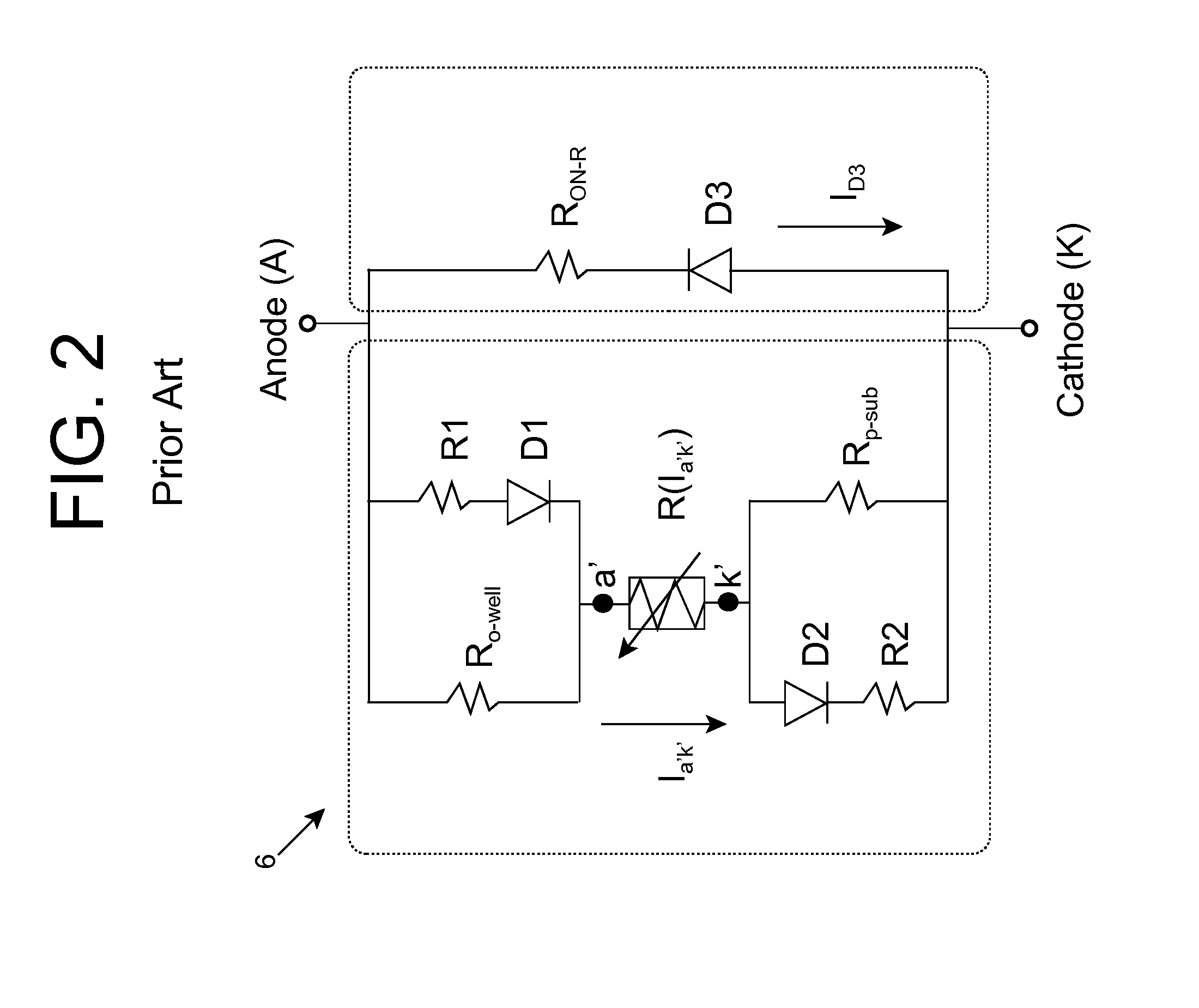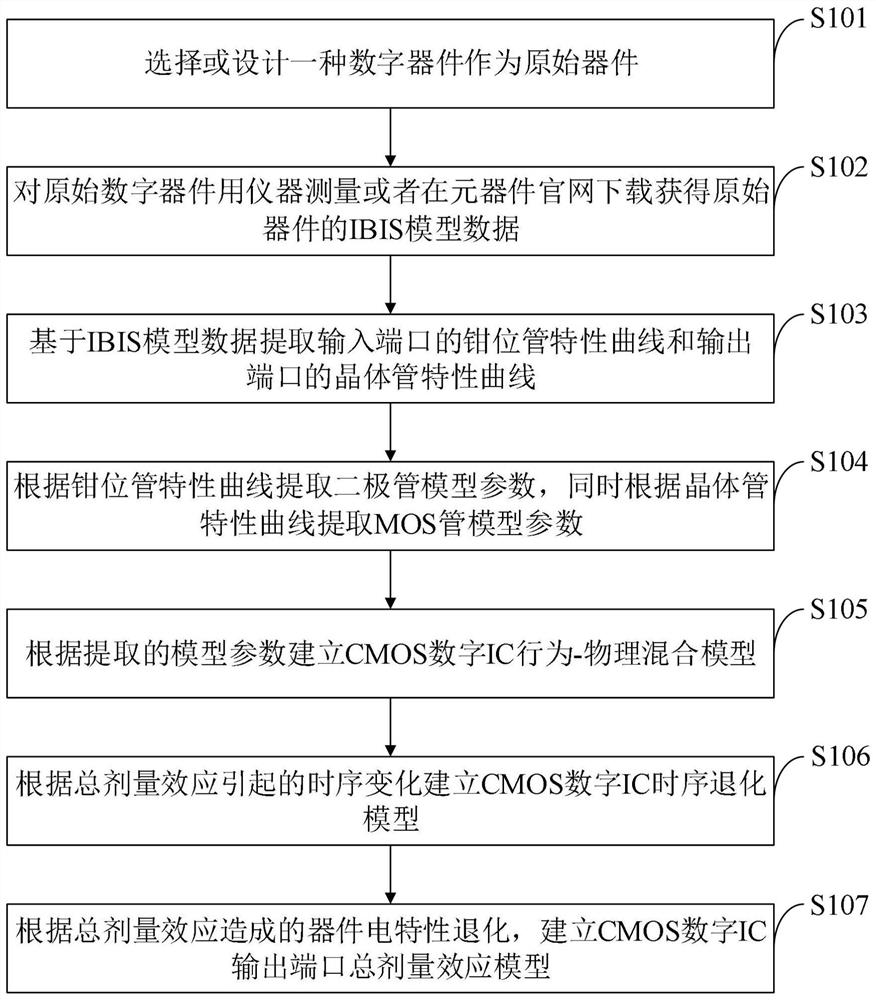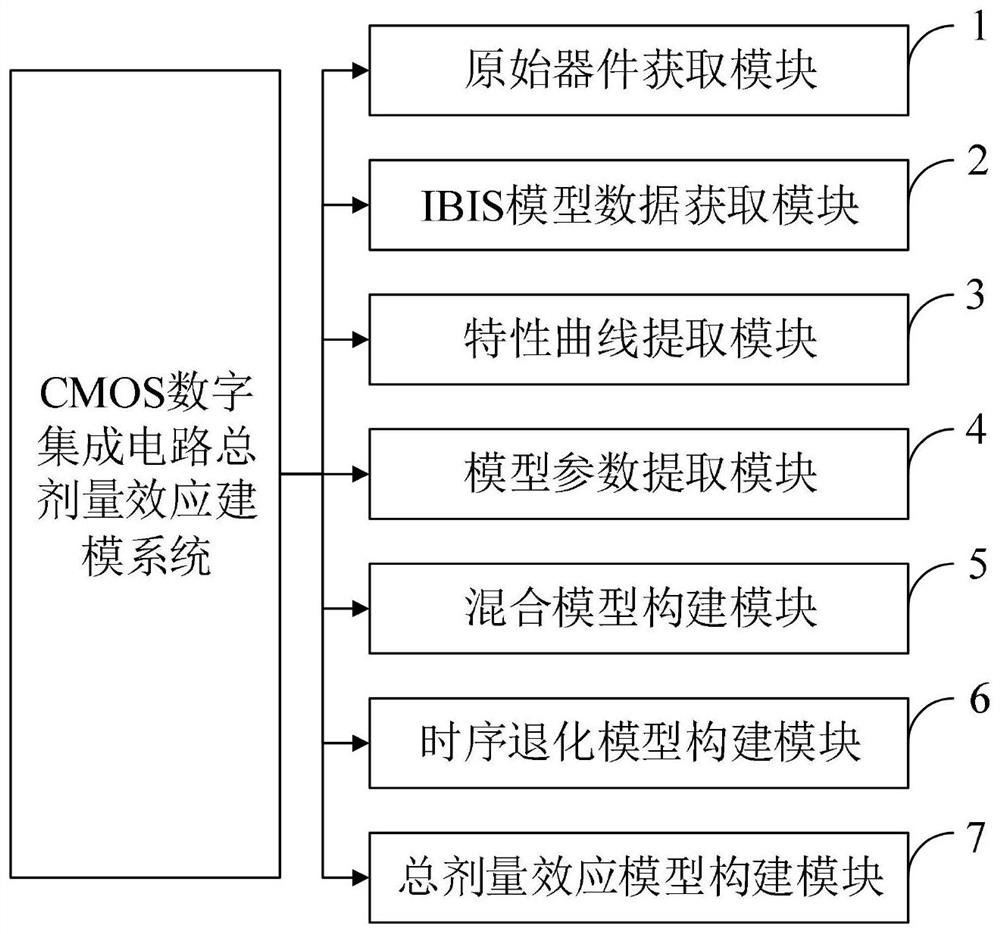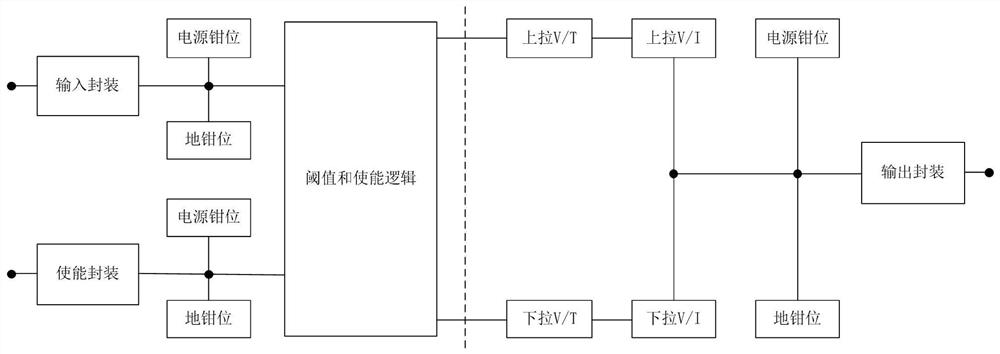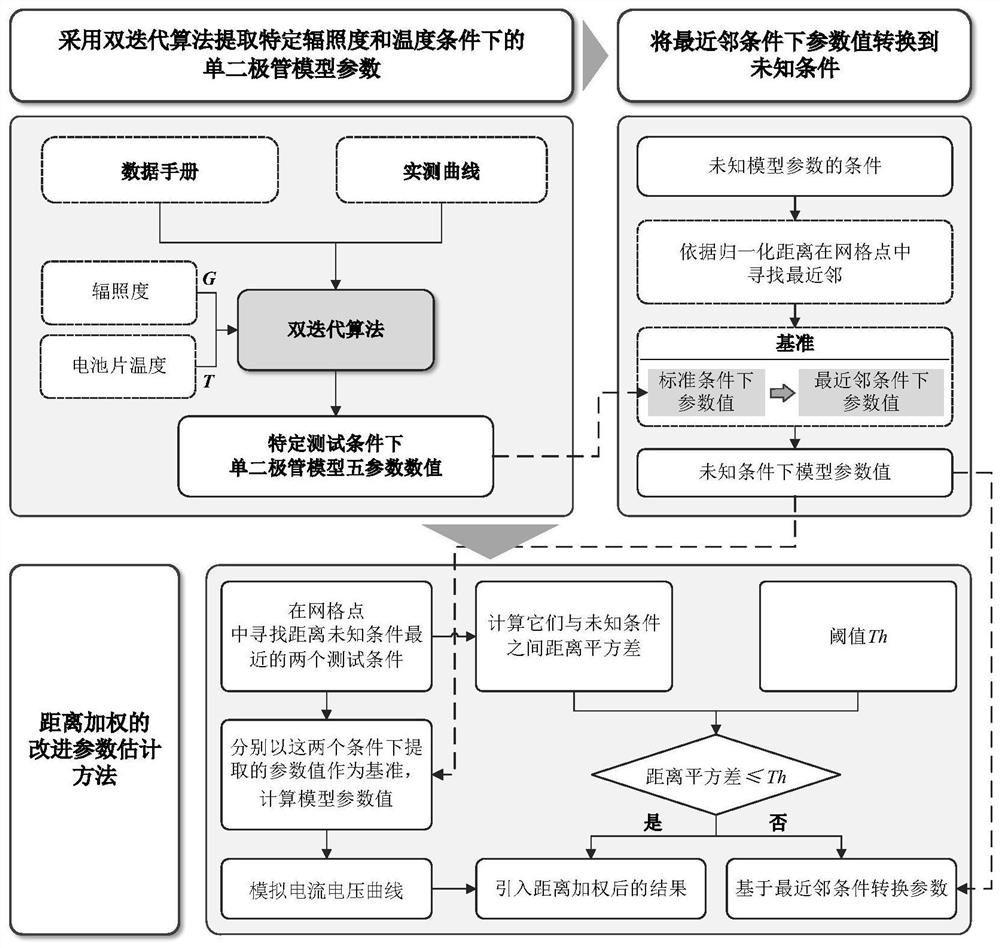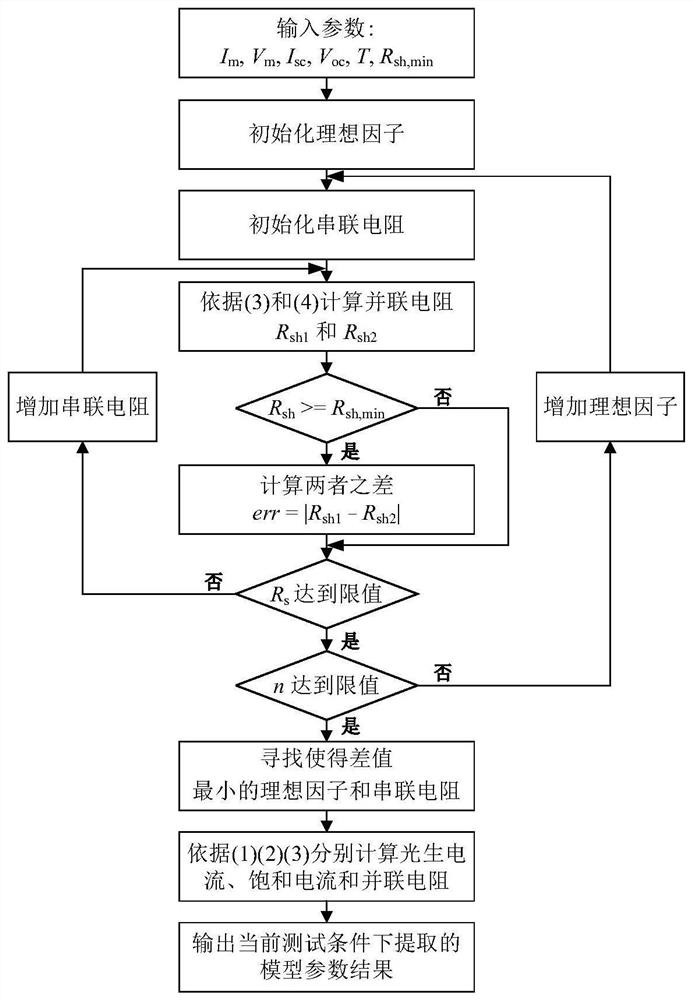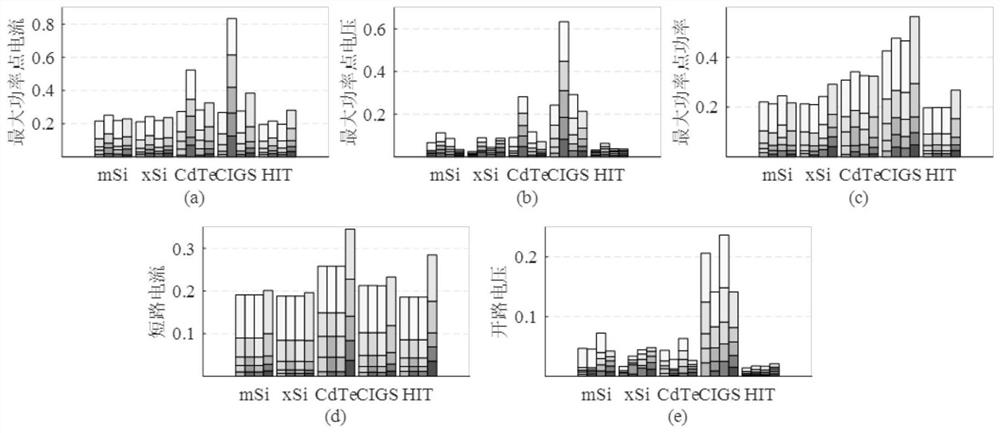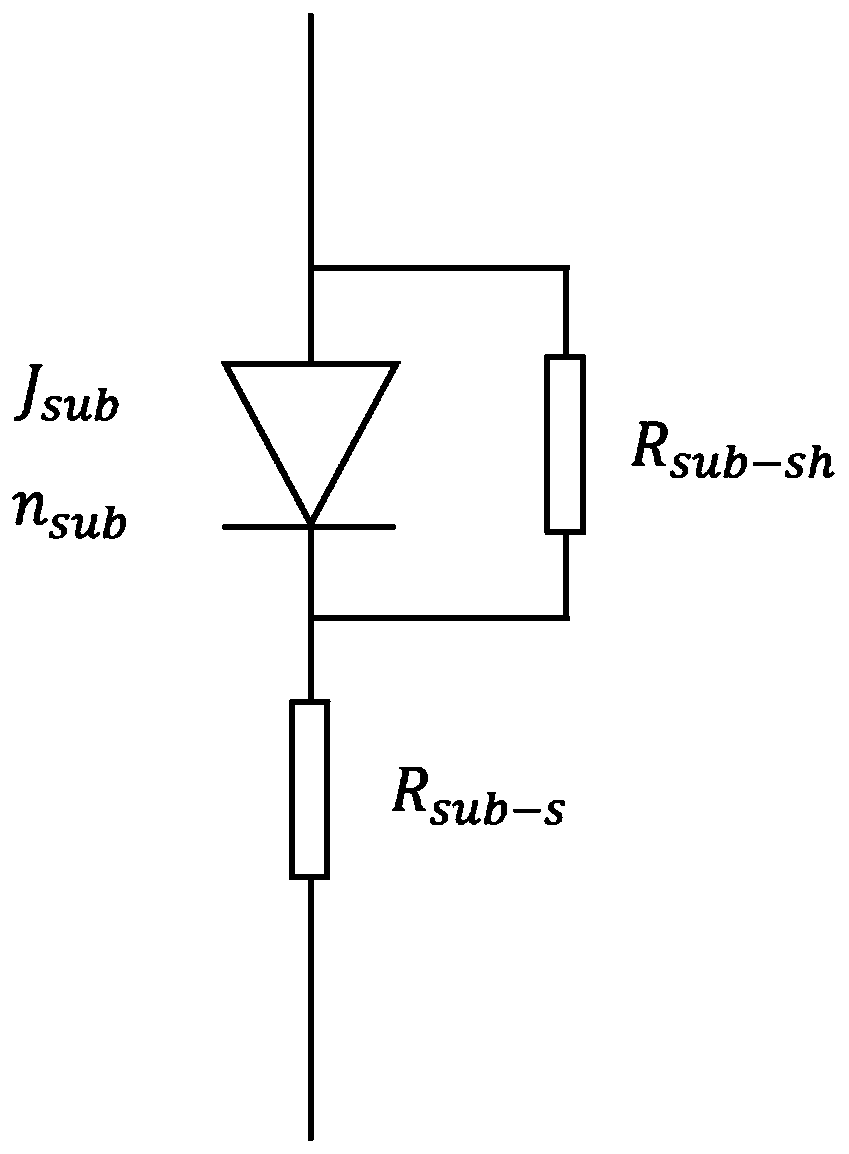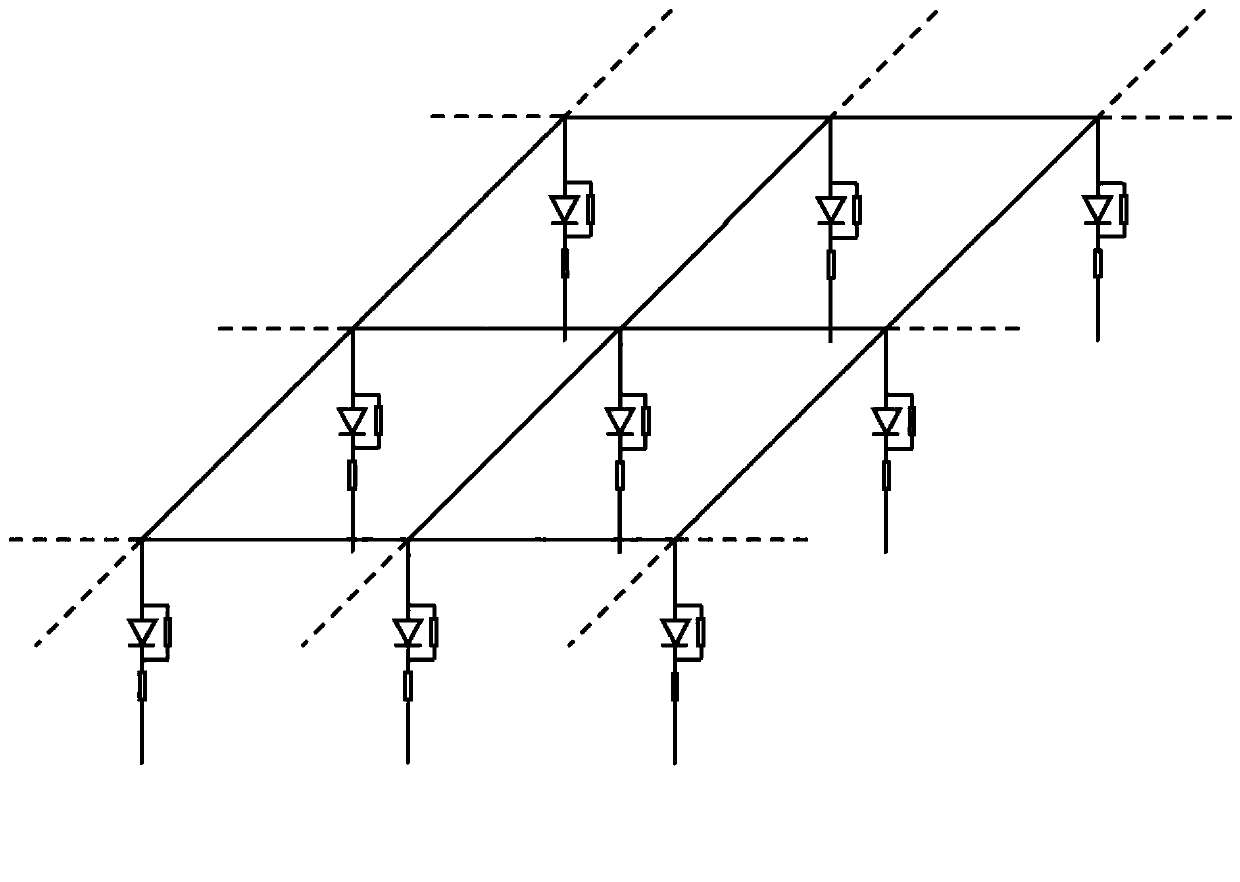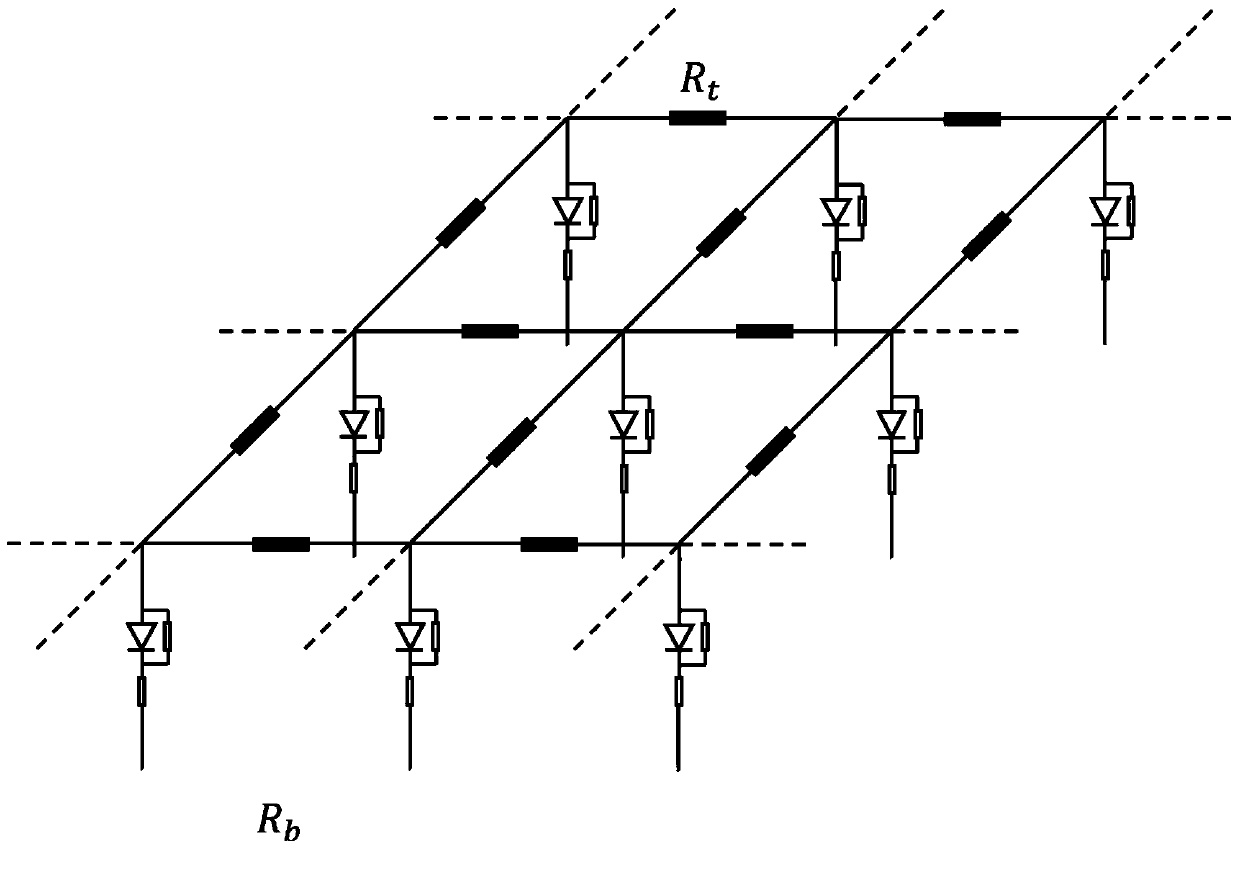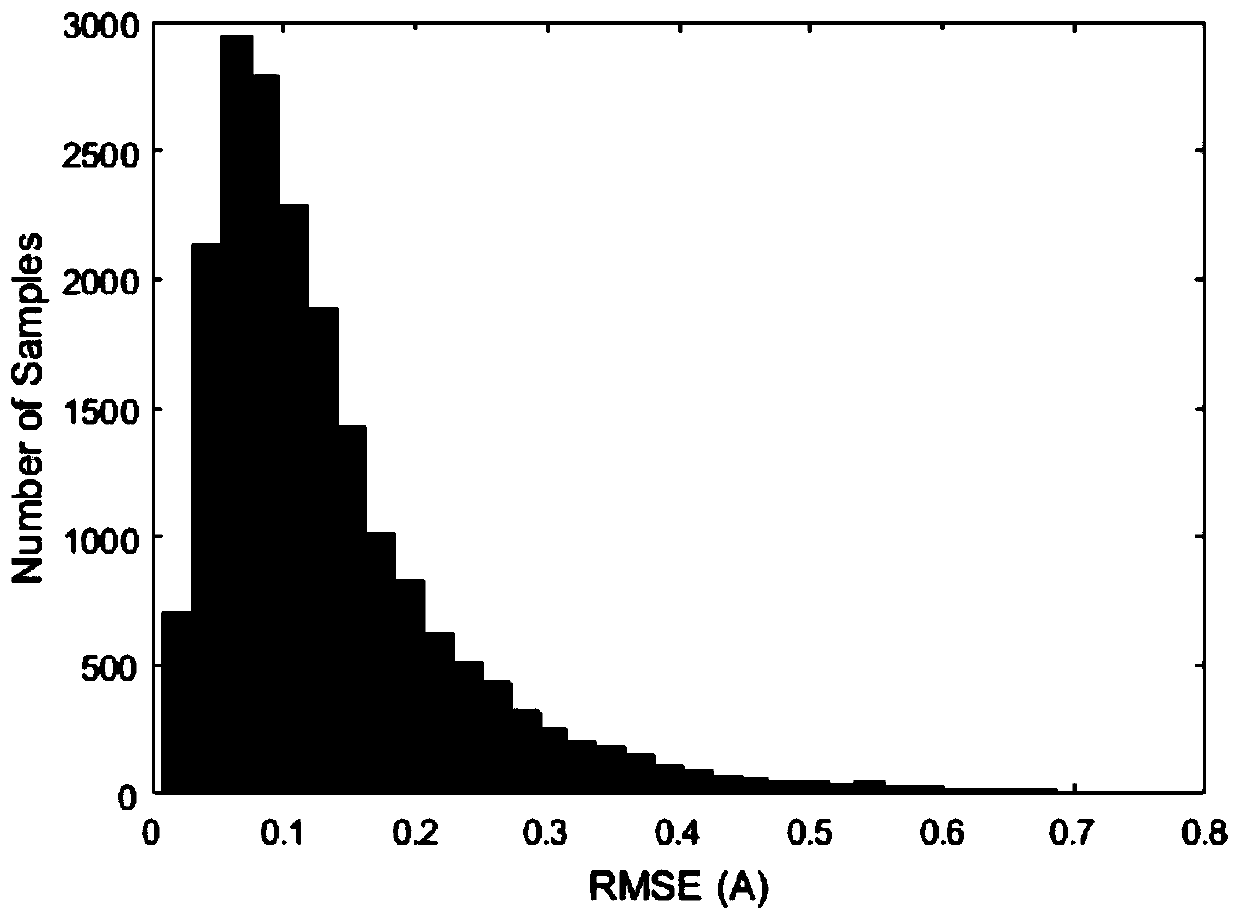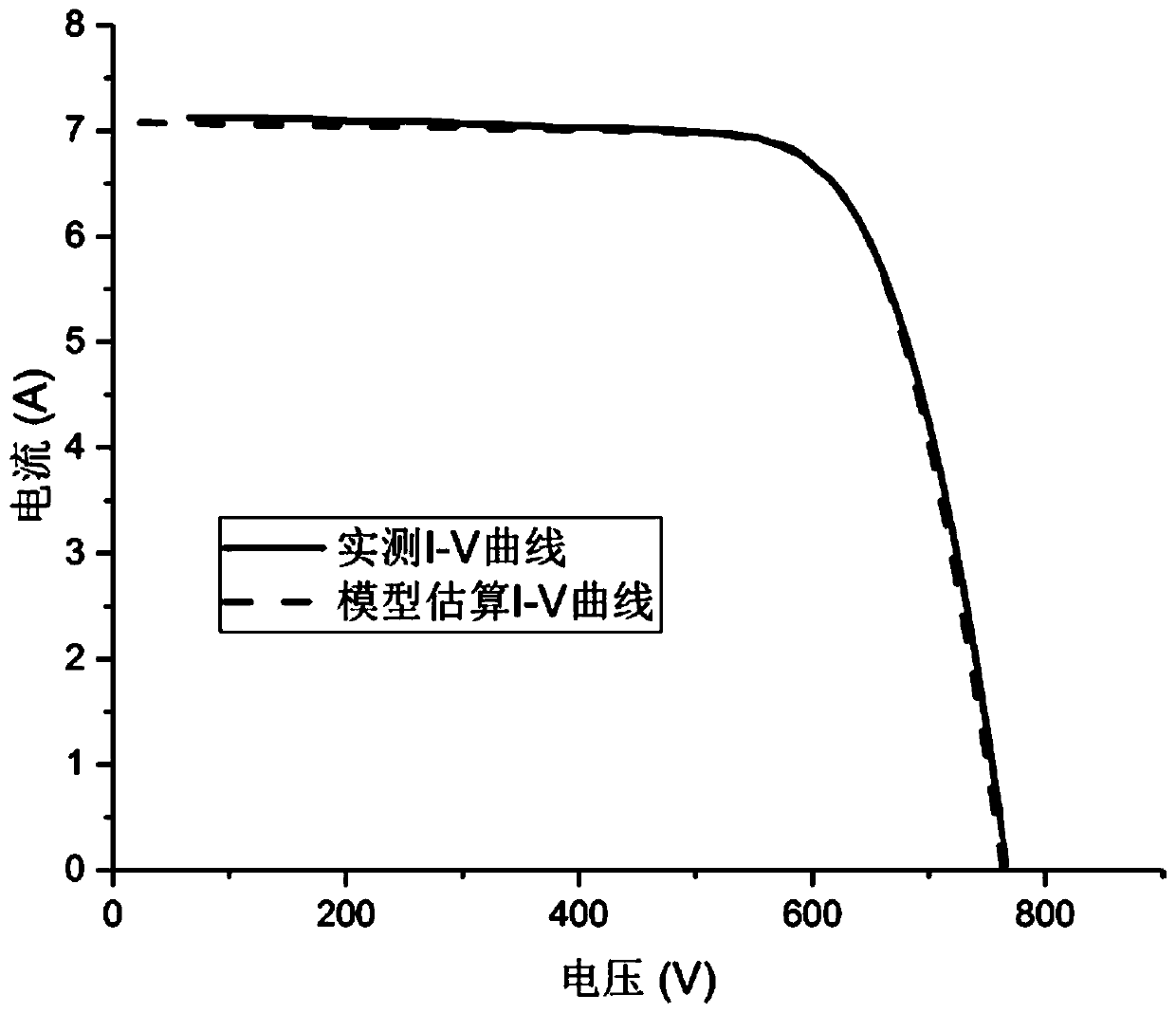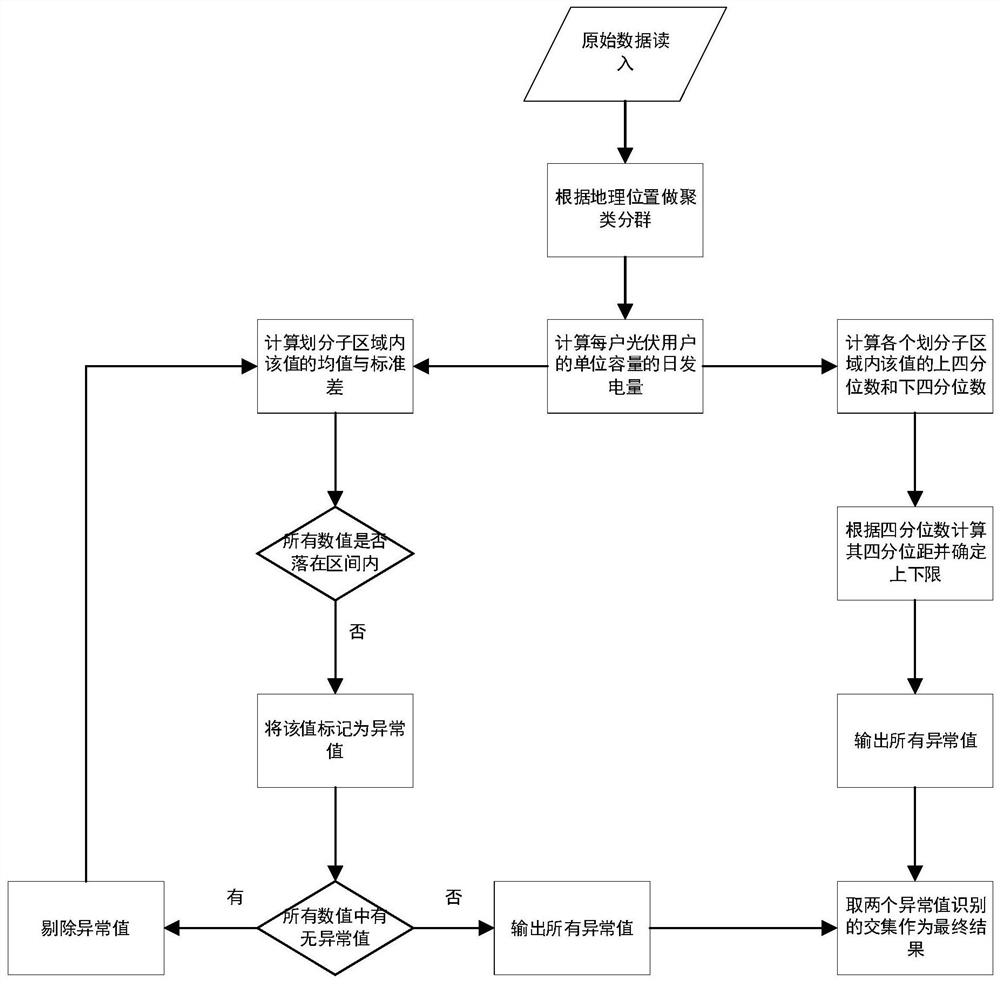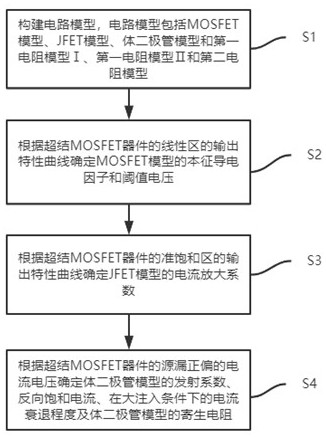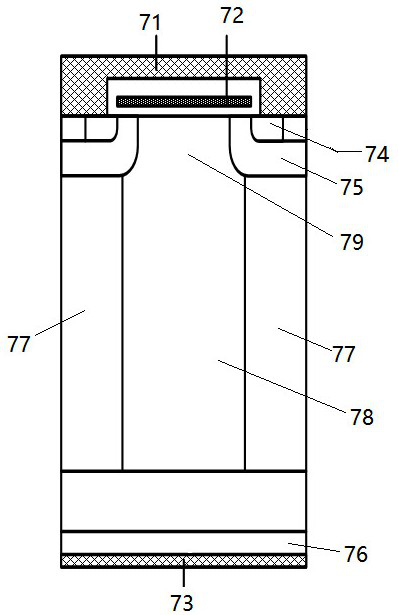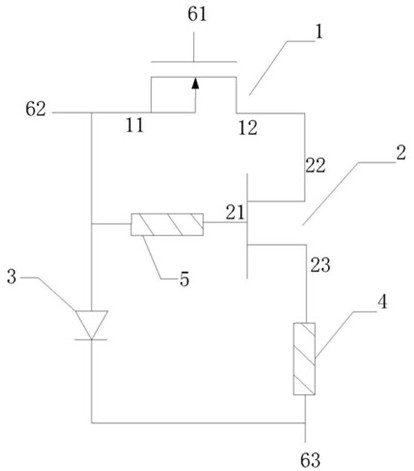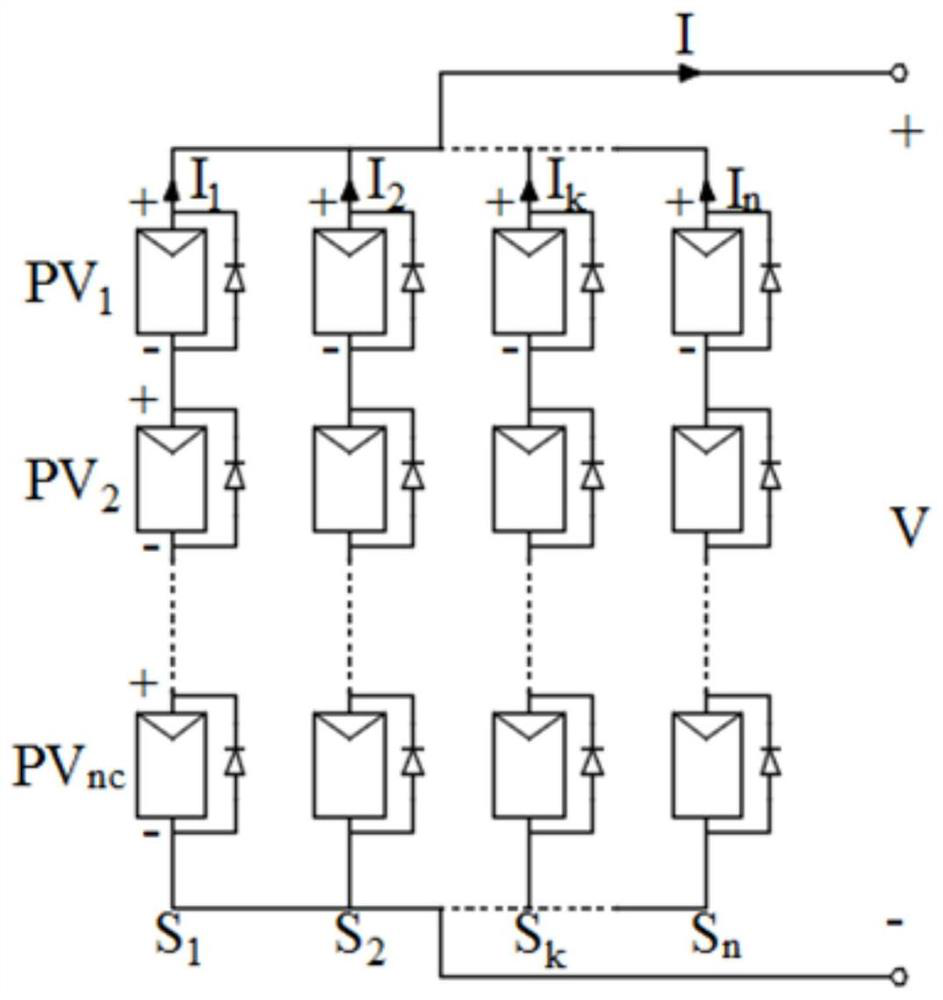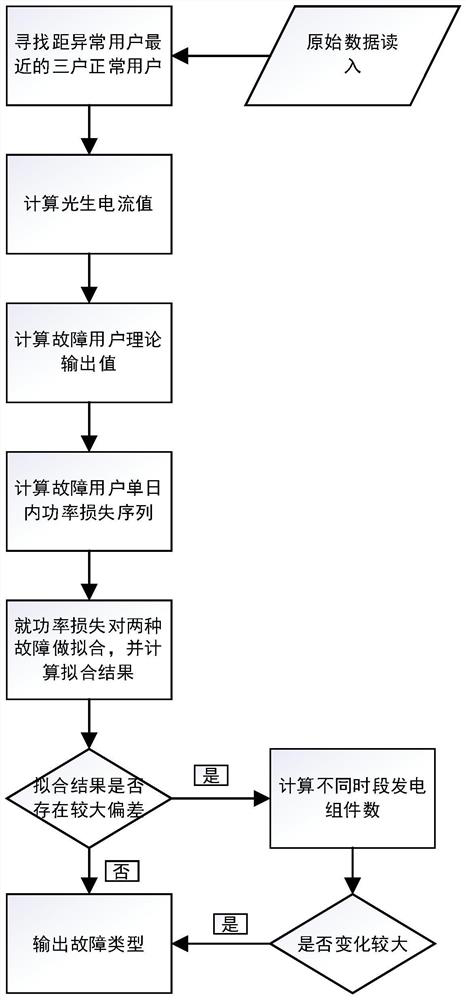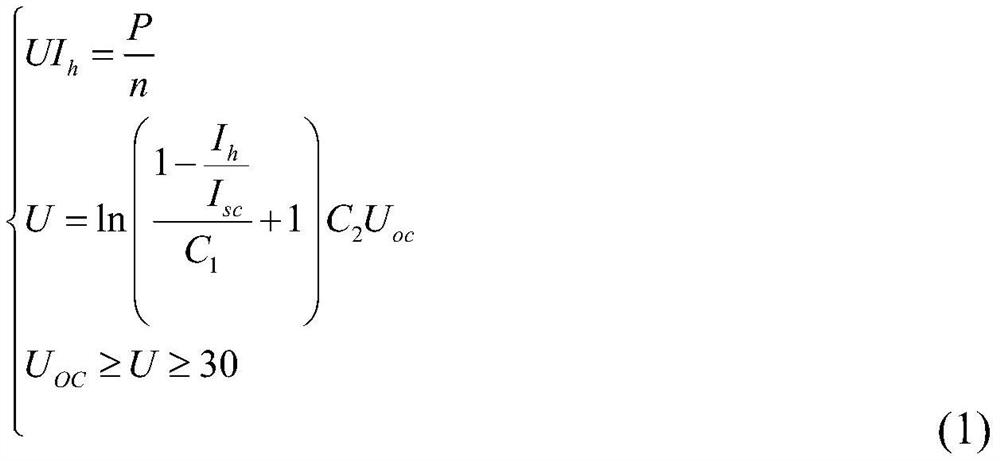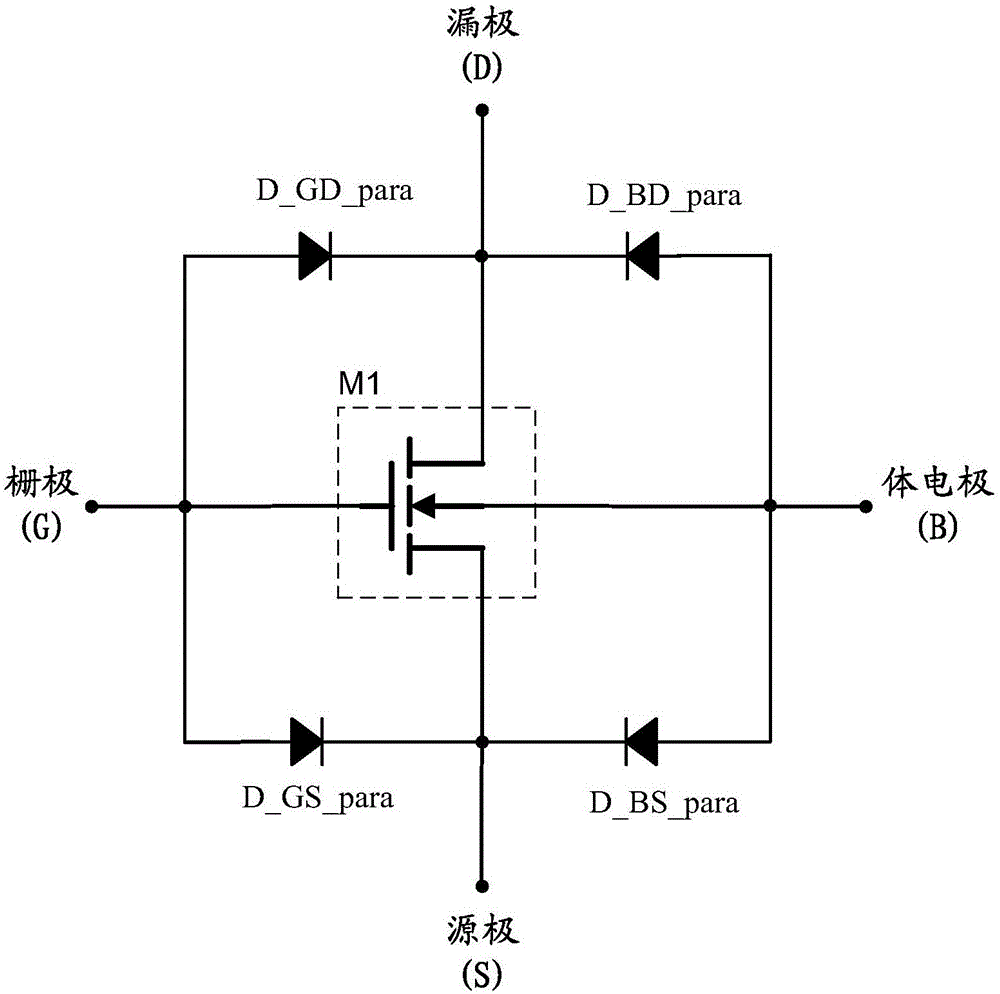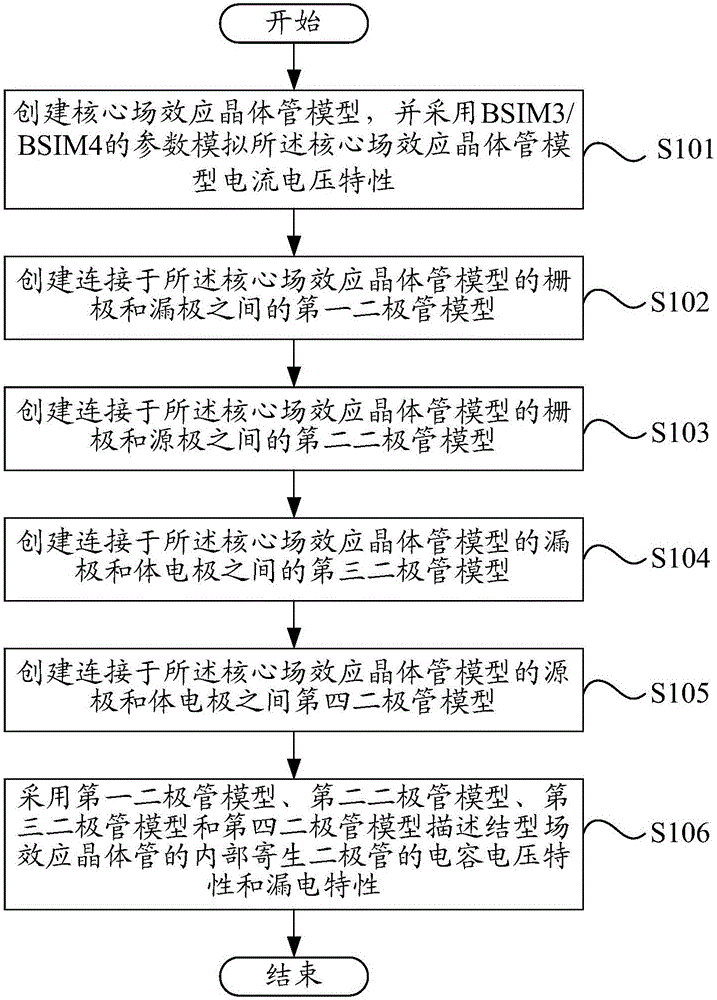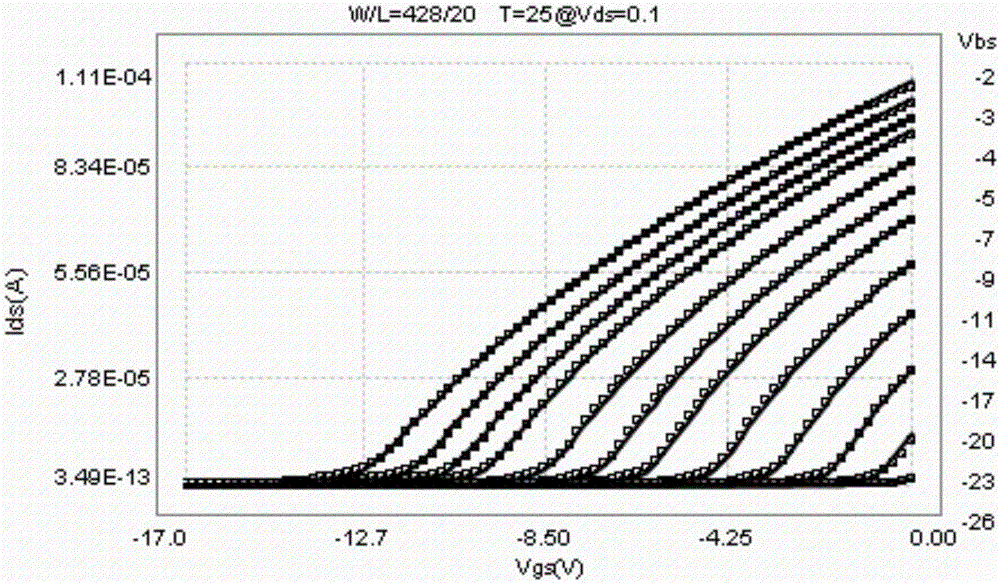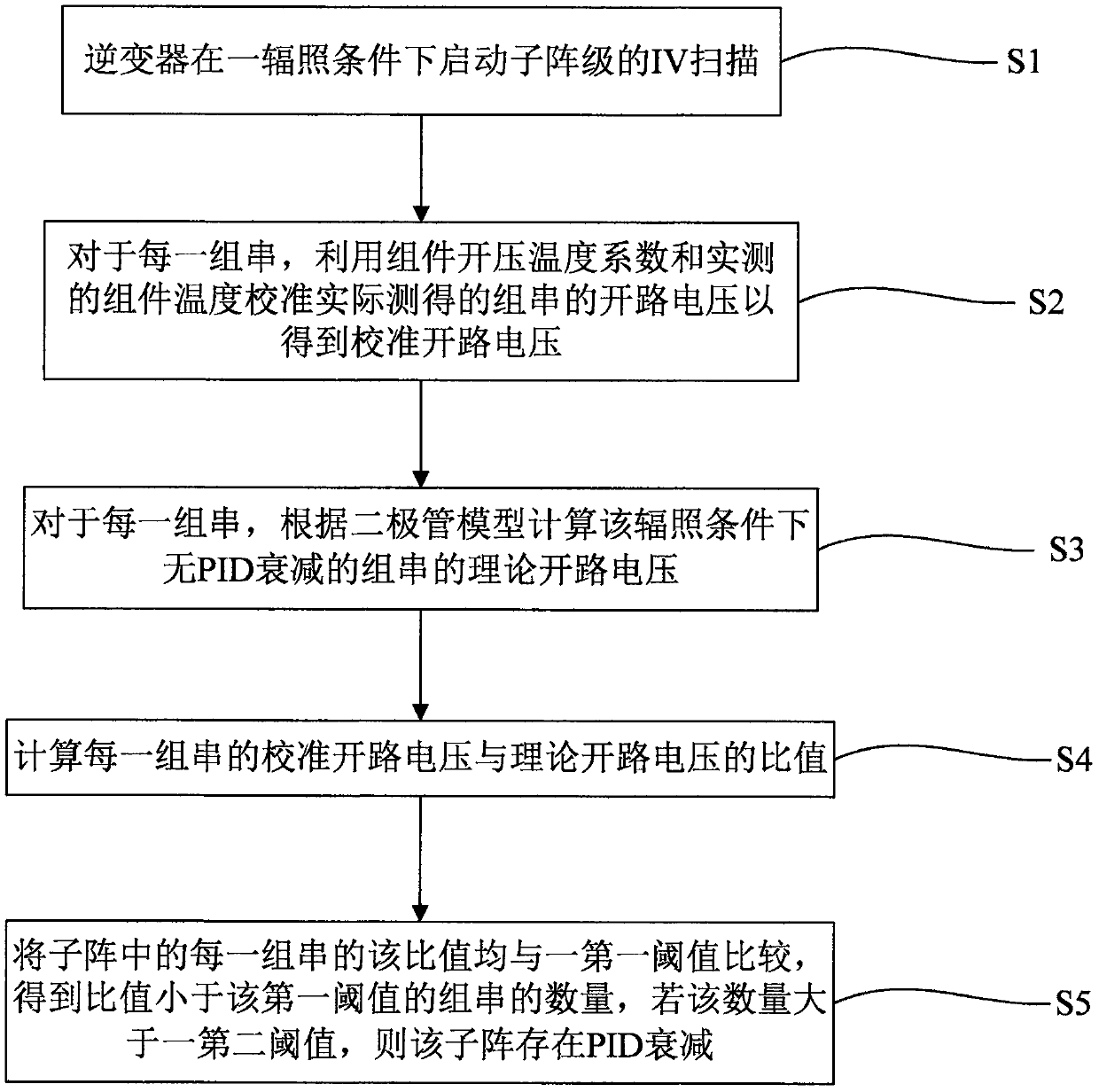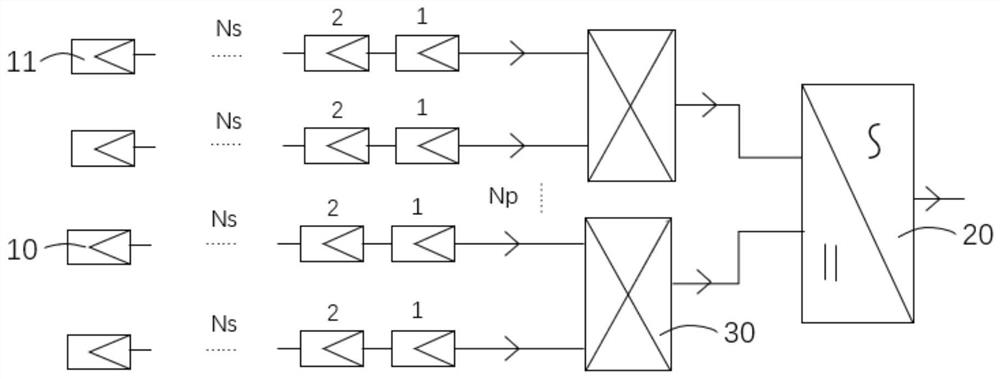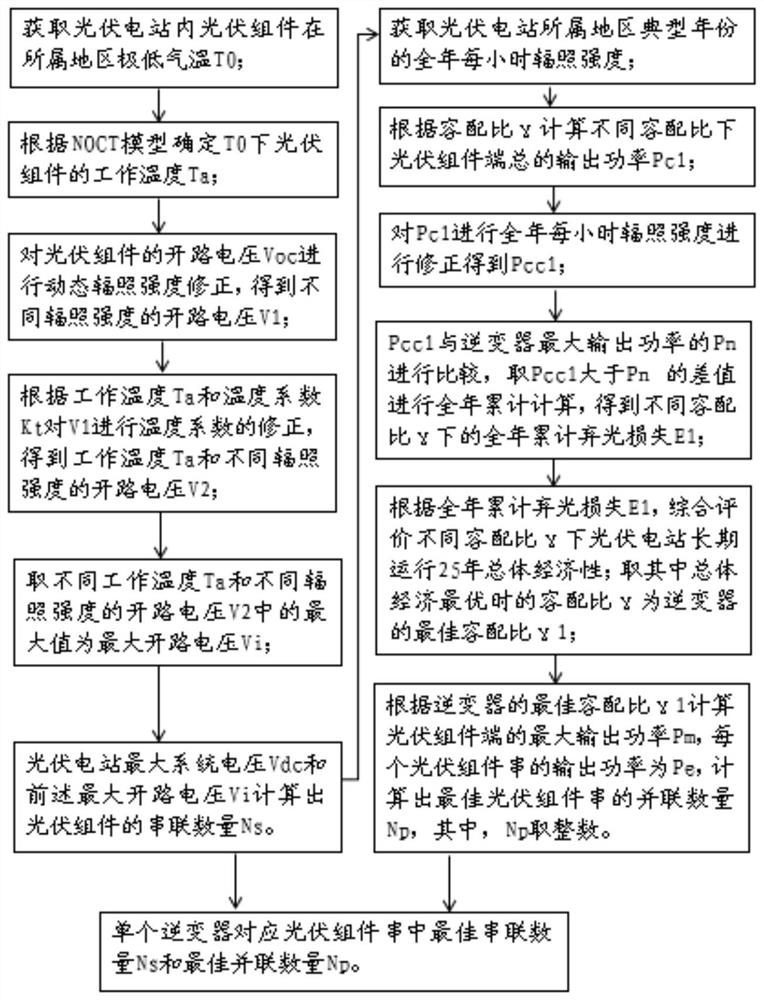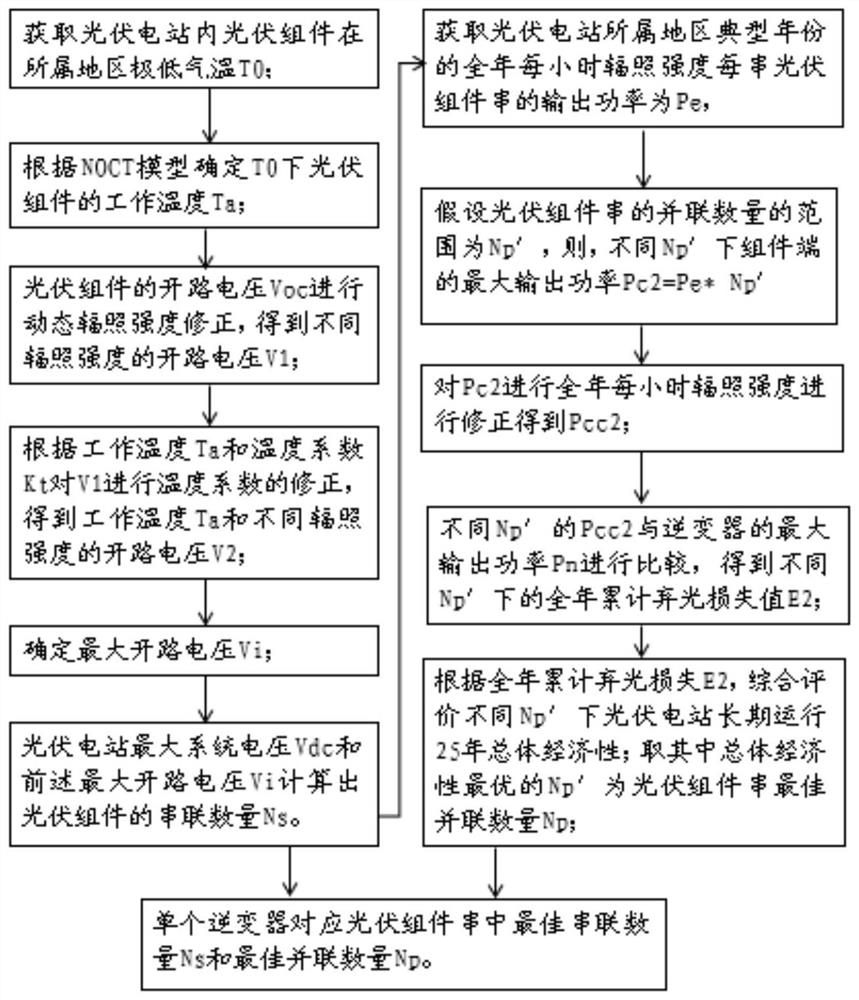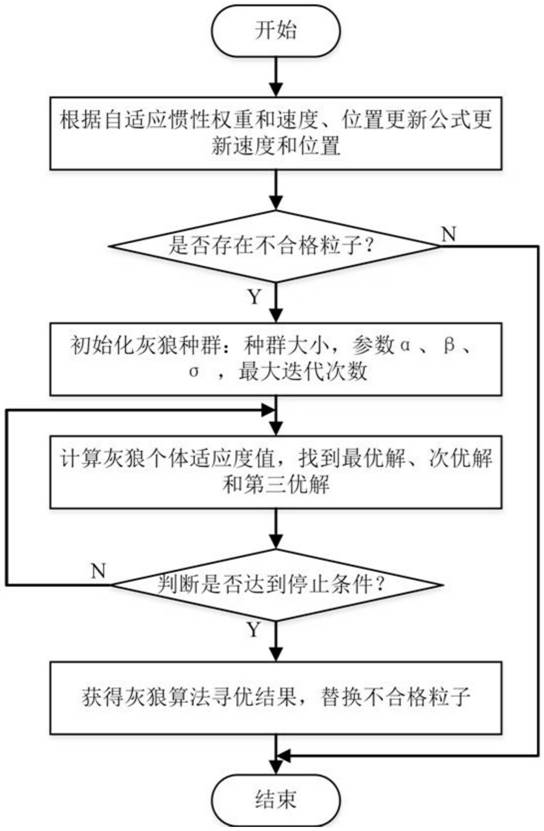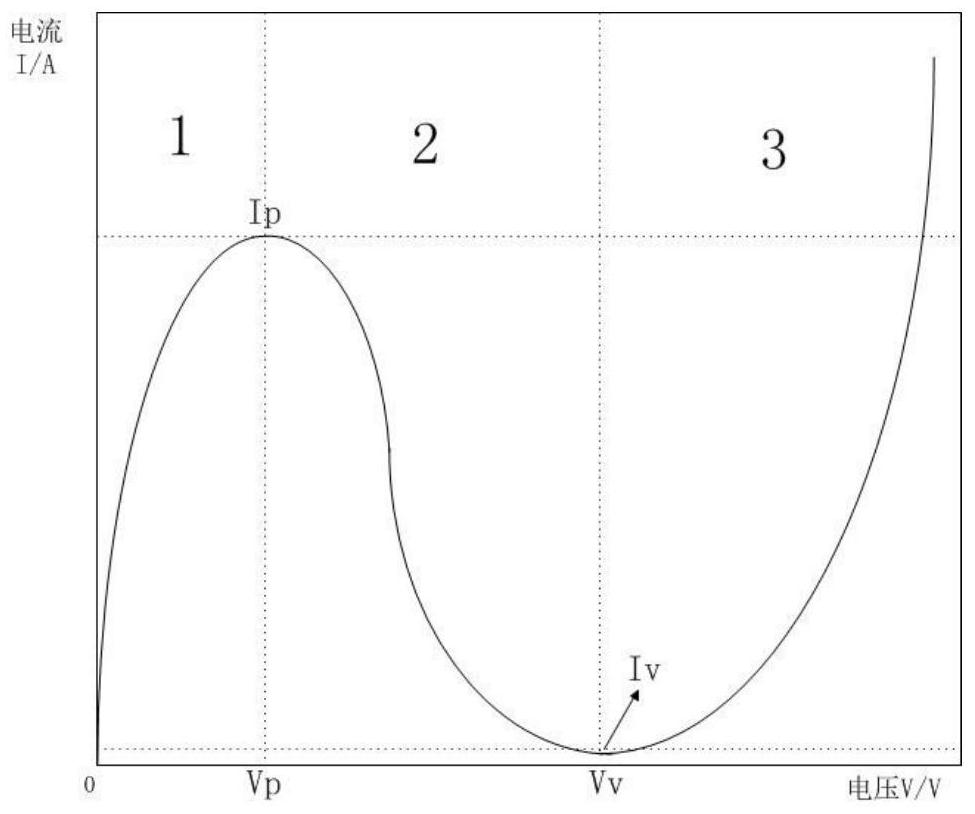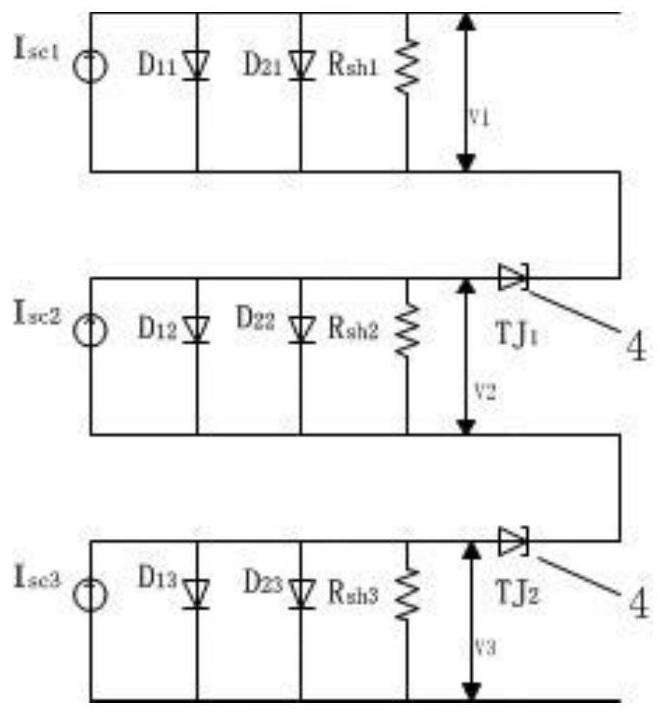Patents
Literature
47 results about "Diode modelling" patented technology
Efficacy Topic
Property
Owner
Technical Advancement
Application Domain
Technology Topic
Technology Field Word
Patent Country/Region
Patent Type
Patent Status
Application Year
Inventor
In electronics, diode modelling refers to the mathematical models used to approximate the actual behaviour of real diodes to enable calculations and circuit analysis. A diode's I-V curve is nonlinear (it is well described by the Shockley diode law). This nonlinearity complicates calculations in circuits involving diodes so simpler models are often required.
Method for modeling diode multiple simulator format SPICE model
ActiveCN101201851AImprove Simulation ResultsGood test data fitSpecial data processing applicationsModel parametersComputer science
The invention discloses a modeling method of a diode SPICE model with various emulator formats, which includes the steps that: the extraction of the diode model parameter with HSPICE emulator format is carried out; the important parameter of the HSPICE emulator format is transformed into the diode model parameter with corresponding SPECTRE emulator format, and the extraction of the diode model parameter in the non-high current injecting area of the SPECTRE emulator format is carried out; the model parameter IKP which generates current distortion of the perimeter part of the diode is added as the model parameter, when the high current is injected, and the extraction of the diode model parameter in the high current injecting area of the SPECTRE emulator format is carried out; the numerical value of the IKP is optimized. The invention can obtain the diode SPICE model with better simulation result and fitness of test data in a short time.
Owner:SHANGHAI HUAHONG GRACE SEMICON MFG CORP
MOS varactor property detection method and MOS varactor manufacturing method using the same
InactiveUS20070093008A1Semiconductor/solid-state device testing/measurementSemiconductor/solid-state device manufacturingCapacitanceTest material
Disclosed is a method for detecting properties of a Metal Oxide Silicon (MOS) varactor, which includes: establishing a MOS varactor model equation in conjunction with an area of a gate; calculating values of the coefficients of the MOS varactor model equation through measurements for test materials; and extracting the properties of a capacitor of the MOS varactor using the calculated values of the coefficients. According to the method, the MOS varactor model equation can be expressed by Cgate=[Cigate×Area+Cpgate×Perimeter]×N, wherein, Cgate denotes gate capacitance for voltage applied to the gate, Cigate denotes intrinsic gate capacitance, Cpgate denotes perimeter gate capacitance, and N denotes the number of gate fingers. The MOS varactor model equation can be applicable to various sized capacitors, so that it is possible to estimate a gate capacitance for voltage applied to a gate, considering the differences due to the surface shapes of a device.
Owner:DONGBU ELECTRONICS CO LTD
Method for precisely simulating performance of photovoltaic battery piece
InactiveCN105938504ACalculation method is simpleImprove accuracySpecial data processing applicationsElectricityV curve
The method brings forward a method for precisely simulating performance of a photovoltaic battery piece. According to a solar battery duodiode model, the method comprises following steps: listing an equivalent equation of the output feature of the model; utilizing a Taylor's formula to descend power to solve such that relations between working current piece and working voltage of the battery is changed to be a linear function; and drawing an I-V curve corresponding to the battery piece based on the electricity performance parameter of the battery piece under the standard condition set by a manufacturer and obtaining electricity performance conditions under different working conditions by controlling light intensity and temperature of the battery piece. The method for precisely simulating performance of the photovoltaic battery piece has following beneficial effects: compared with a single-diode four-parameter method, the method has greater accuracy and especially has greater accuracy than a single-diode model under the condition of low irradiance; and the greatest working point basically coincides with parameters provided by the manufacturer within the range of degree of deviation of 2%.
Owner:HOHAI UNIV CHANGZHOU
Method for extracting parameters of solar cell
InactiveCN108880469ADetermining the IV characteristic equationAvoid errorsPhotovoltaic monitoringPhotovoltaic energy generationPower flowV curve
The invention provides a method for extracting parameters of a solar cell. The method comprises the following steps that 1) an ideal current voltage characteristic equation of a single-diode solar cell equivalent circuit is obtained according to the kirchhoff current law, and a solar cell single-diode model is established; 2) a semiconductor tester is used for measuring I-V curves of the solar cell, parameters of an open-circuit voltage Voc and a short circuit Isc can be obtained by combination of the I-V curves in the single-diode model, and then an unknown parameter of parallel resistance Rsh is extracted; 3) unknown parameters of series resistance Rs and an ideal factor n are determined by introducing temporary parameters of Rso and no through iterative calculation for multiple times; and 4) an unknown parameter of optical current Iph and a reverse saturation current I0 are obtained by substituting the obtained parameter values into formula deformation.
Owner:CHANGAN UNIV
Method for solving parameter of photovoltaic cell single diode model
InactiveCN104392116ASimple calculationHigh solution accuracyBiological modelsSpecial data processing applicationsAlgorithmModel parameters
The invention provides a method for solving a parameter of a photovoltaic cell single diode model. The method comprises the following steps of step 1, building a photovoltaic cell single diode four-parameter model, i.e. taking the equation that RMES is equal to a formula as an objective function, wherein an ideal factor n is equal to 1.5, and reducing the number of unknown parameters in the objective function to four, i.e. Rs, Rsh, Iph and Isd; step 2, calculating the optimal solution of the objective function by a bee colony algorithm, including the steps of initializing each bee, calculating the value of the objective function of each bee, taking at least two bees with relatively low objective function value as honey-collecting bees, taking the other bees as following bees, taking at least one bee with the lowest objective function value from the honey-collecting bees as an elite bee, updating the positions of the following bees according to a random stepping function, updating the positions of the honey-collecting bees according to the elite bee, performing iteration for preset times, and obtaining the optimal solution of the objective function to obtain the values of the four model parameters, i.e. the Rs, Rsh, Iph and Isd.
Owner:UNIV OF SHANGHAI FOR SCI & TECH
Silicon controlled rectifier modeling
InactiveUS20110166847A1Ac-dc conversion without reversalAnalogue computers for electric apparatusSilicon-controlled rectifierElectrostatic discharge protection
A model for a silicon controlled rectifier includes three diode models connected in series, with the middle diode model being reverse biased. Each diode model corresponds to and can be configured to simulate DC operation of a junction in the silicon controlled rectifier. The model can be used to evaluate behavior of a circuit that includes the silicon controlled rectifier. For example, the circuit can include an electrostatic discharge protection circuit that includes the silicon controlled rectifier.
Owner:GLOBALFOUNDRIES INC
Radio frequency transceiver switching circuit
The invention discloses a radio frequency transceiver switching circuit which comprises CMOS (Complementary Metal Oxide Semiconductor) devices and a duodiode with a P trap / deep N trap and deep N trap / P substrate, wherein the deep N trap and the P trap float. The invention provides the high-performance radio frequency switching circuit which is designed by utilizing a combined circuit model formed by the CMOS devices on four ends and an additional duodiode model which describes the P trap / deep N trap and deep N trap / P substrate, so that all radio frequency indexes such as isolation, insertion loss and linearity can be obtained.
Owner:SHANGHAI HUAHONG GRACE SEMICON MFG CORP
Simplified modeling and parameter extraction method for double-diode model of photovoltaic module
PendingCN111368491AThe output characteristics are obtained preciselyComputer aided designSpecial data processing applicationsStandard test conditionEngineering
The invention discloses a simplified photovoltaic module double-diode model modeling and parameter extraction method which is characterized by comprising the following steps: 1) establishing a double-diode model of a photovoltaic module according to an output characteristic equation of a double-diode equivalent circuit of a solar cell; 2) simplifying seven parameters in the double-diode model of the photovoltaic module into four parameters to obtain a simplified model; 3) solving parameters of the simplified model through nameplate parameters provided by a manufacturer to obtain an output characteristic curve of the component under a standard test condition; and 4) extrapolating the output characteristic curve of the photovoltaic module under the standard test condition to any irradiance according to the environmental parameters. By adopting the method, the problems of difficulty in solving parameters of a double-diode model of a traditional photovoltaic module and difficulty in solving all model parameters from nameplate parameters provided by a manufacturer are solved, and the output characteristics of the photovoltaic module in different environments are accurately described.
Owner:HOHAI UNIV CHANGZHOU
Maximum power estimation method for photovoltaic power generation system
PendingCN111446732ASelect a small impactFast convergenceSingle network parallel feeding arrangementsPhotovoltaic energy generationGauss newton methodComputational physics
The invention provides a maximum power estimation method for a photovoltaic power generation system. The maximum power estimation method comprises the steps of establishing a double-diode 7 parametermodel of a photovoltaic cell, and realizing conversion calculation from environmental parameters to standard conditions by adopting open-circuit voltage and short-circuit current parameters; and usingan L-M algorithm controlled by parameters, so that the algorithm shows the characteristics of a gradient descent method and a Gauss-Newton method in sections, and the advantages of the two methods are fully combined. Photovoltaic double-diode model parameter calculation based on the L-M algorithm is less affected by iterative initial value selection, and convergence speed and precision are increased. The maximum power value is obtained based on an open-circuit voltage approximation method. The process of one-time iteration is omitted, and the calculation speed is increased.
Owner:STATE GRID GASU ELECTRIC POWER RES INST +2
Photovoltaic power generation microgrid simulation system
PendingCN110781608AConcise and precise calculationHigh precisionData processing applicationsDesign optimisation/simulationThermodynamicsMicrogrid
The invention relates to a photovoltaic power generation microgrid simulation system, which comprises a simulation photovoltaic cell, a control module and a simulation load, the simulation photovoltaic cell adopts a single-diode model; two ends of the simulation photovoltaic cell are connected with simulation loads; the control module adopts a variable step size disturbance observation method to perform maximum power tracking control on the simulation photovoltaic cell; and the control module is used for fitting the output characteristics of the simulation photovoltaic cell. The single-diode model of the photovoltaic cell provided by the invention has the beneficial effects that the load current can be calculated more simply and accurately by considering both the series resistance and theparallel resistance, so that the accuracy of a photovoltaic power generation microgrid simulation system can be improved. The current output power can be quickly adjusted to the maximum output power through the variable step size disturbance observation method, and then the running speed of the system can be increased on the premise that it is guaranteed that the photovoltaic cell is used for power generation to the maximum extent.
Owner:ZHEJIANG ZHENENG TECHN RES INST
Method for eliminating internal node of diode to rapidly simulate circuit
InactiveCN102841960AGuaranteed accuracyHigh speedSpecial data processing applicationsElectrical resistance and conductanceDiode modelling
The invention provides a method for eliminating an internal node of a diode to rapidly simulate a circuit, so as to rapidly simulate the circuit; the method performs approximation analysis to the electric equation of the diode, so as to equalize the three-node diode model comprising parasitic resistance into the two-node diode model after eliminating the internal node. The method provided by the invention considers all physical effects of the diode model of a current main circuit stimulator, such as high injection effect, tunnelling effect and reverse breakdown characteristic. The method provided by the invention can reduce the size of the circuit solving matrix under the condition of guaranteeing the convergence precision of the circuit, so as to greatly reduce the LU resolving time of the circuit matrix and improve the speed of the circuit stimulator.
Owner:北京华大九天科技股份有限公司
Photovoltaic cell model parameter identification method and device based on salp swarm algorithm
InactiveCN113037213AIncrease flexibilityEasy to implementPhotovoltaic monitoringArtificial lifePattern recognitionLocal optimum
The invention relates to the technical field of photovoltaic cells, in particular to a photovoltaic cell model parameter identification method and device based on the salp swarm algorithm. The method comprises the following steps: acquiring the output response of a photovoltaic cell under different illumination intensities; constructing a fitness function of the salp swarm algorithm in combination with a dual-diode equivalent circuit model; initializing the positions of salp swarm individuals and setting salp swarm parameters; and performing loop iteration, and outputting an identification result. According to the invention, the double-diode model is introduced as the equivalent circuit model of the photovoltaic cell, and parameter identification is carried out on the double-diode model through the salp swarm algorithm, so parameter identification is more in line with the actual situation compared with a single-diode model, and a matching degree with the output characteristics of the photovoltaic cell is higher; and meanwhile, parameter identification is carried out on the double-diode model by using the salp swarm algorithm, and the salp swarm algorithm is high in flexibility, easy to implement and not prone to falling into local optimum, so a global optimum point can be accurately searched, and parameter identification precision is effectively improved.
Owner:国网新疆电力有限公司信息通信公司 +5
Schottky diode model parameter calibration method
ActiveCN110084001AGuaranteed accuracyEasy to useSpecial data processing applicationsPower flowSchottky diode
The invention discloses a Schottky diode model parameter calibration method. The method comprises the steps of obtaining a test curve of a forward current-voltage characteristic of a Schottky diode; determining a calibration value of a core parameter and an empirical initial value of an auxiliary parameter in a preset Schottky diode model; wherein the core parameter is a model parameter influencing the change trend of the forward current-voltage characteristic, and the auxiliary parameter is a model parameter influencing the change precision of the forward current-voltage characteristic; adjusting and obtaining an adjusting value of the auxiliary parameter; substituting the calibration value of the core parameter and the adjustment value of the auxiliary parameter into a preset Schottky diode model; obtaining a simulation curve of the forward current-voltage characteristic; judging whether the fitting error of the simulation curve and the test curve is smaller than a preset threshold value or not; if yes, determining the adjustment value of the auxiliary parameter as a calibration value of the auxiliary parameter; and if not, continuing to execute the step of adjusting and obtaining the adjustment value of the auxiliary parameter. The method is simple and easy to implement, low in technical threshold and convenient to use.
Owner:湖南德雅坤创科技有限公司
Photovoltaic cell model building method
InactiveCN108509757AEasy to buildEasy to modifyDesign optimisation/simulationSpecial data processing applicationsData setV curve
The invention provides a photovoltaic cell model building method. The method comprises the following steps of 1, obtaining an actual measurement I-V output data set of a photovoltaic cell; 2, obtaining an I-V output data set of a photovoltaic cell model, and meanwhile, generating I-V curve scatter diagrams according to the I-V output data set of the photovoltaic cell model and the actual measurement I-V output data set of the photovoltaic cell respectively; 3, fitting the two I-V curve scatter diagrams obtained in the step 2 until complete fitting to obtain optimal model parameters; and 4, building a cell duodiode model by utilizing LTspice, and inputting the optimal model parameters to the cell duodiode model, thereby finishing the building of a photovoltaic cell duodiode model. Accordingto the method, serial and parallel connection between cell models is conveniently realized; different running conditions and parameters are set for the cell models; simulation of cells or componentsunder various complex conditions is realized; and all simulative output data can be exported, thereby facilitating data comparative analysis.
Owner:LONGI SOLAR TECH (TAIZHOU) CO LTD
Method for extracting solar battery parameters
ActiveCN108280287ADescribe wellThe extraction result is accurateCAD circuit designSpecial data processing applicationsV curveEngineering
The invention provides an algorithm for extracting solar cell parameters. The method is characterized by comprising the steps of 1) obtaining a current-voltage characteristic equation of an ideal single-diode solar battery equivalent circuit according to the Kirchhoff's current law, and establishing a solar battery single-diode model; 2) using J-V curves in the single-diode model to obtain parameters (open circuit voltage Voc, a short circuit Jsc, shunt resistance Rsh and moc) to extract unknown parameters (an ideal factor n, reverse saturation current J0 andseries resistance Rs); 3) drawing corresponding curves corresponding to measurement values Jsc, Voc, and moc of a solar battery under different penetrating illumination to determine the values of unknown parameters Rs, n, and J0.
Owner:CHANGAN UNIV
Silicon controlled rectifier modeling
InactiveUS8489378B2Ac-dc conversion without reversalAnalogue computers for electric apparatusSilicon-controlled rectifierElectrostatic discharge protection
A model for a silicon controlled rectifier includes three diode models connected in series, with the middle diode model being reverse biased. Each diode model corresponds to and can be configured to simulate DC operation of a junction in the silicon controlled rectifier. The model can be used to evaluate behavior of a circuit that includes the silicon controlled rectifier. For example, the circuit can include an electrostatic discharge protection circuit that includes the silicon controlled rectifier.
Owner:GLOBALFOUNDRIES INC
Complementary metal oxide semiconductor (CMOS) digital integrated circuit total dose effect modeling method and system
PendingCN113341761AEmbodies analog featuresImproving Behavior-Level Modeling MethodsSimulator controlCMOSComputational physics
The invention belongs to the technical field of digital device irradiation effect model modeling, and discloses a CMOS digital integrated circuit total dose effect modeling method and system, and the method comprises the steps: selecting or designing an original device; obtaining IBIS model data of the original device; extracting a clamping tube characteristic curve of the input port and a transistor characteristic curve of the output port; extracting diode model parameters according to the clamping tube characteristic curve, and extracting MOS tube model parameters according to the transistor characteristic curve; establishing a CMOS digital IC behavior-physical hybrid model according to the model parameters, and establishing a CMOS digital IC time sequence degradation model; and establishing a total dose effect model of the output port of the CMOS digital IC according to the electrical characteristic degradation of the device caused by the total dose effect. The model established by the invention not only can reflect the logic function of the CMOS digital device, but also provides model support for system simulation under the irradiation condition.
Owner:XIDIAN UNIV
Photovoltaic module model parameterization method considering environment and time-varying factors
PendingCN112487347AConforms to the characteristic performanceImprove accuracyPhotovoltaic monitoringResourcesControl engineeringData mining
The invention discloses a photovoltaic module model parameterization method considering environment and time-varying factors, and the method comprises the following steps: employing a double-iterationalgorithm to extract single-diode model parameters under a specific operation condition, and enabling a result of the algorithm to serve as a reference of later estimation; estimating a parameter value under an unknown condition based on the parameters extracted under the nearest neighbor condition; and further optimizing the estimation parameters by utilizing a grid point distance weighting result. The double-iteration algorithm provided by the invention only needs related data of three key working points, does not need additional working points or slope data, has a wider application space in actual engineering, has higher robustness and physical interpretability for noise compared with a traditional analytical method, and besides, has higher robustness and lower physical interpretability for noise compared with the traditional analytical method. The five model parameters estimated by the method all consider the influence of the operating environment, and degradation factors can be introduced to describe the degradation process of the photovoltaic module, which is more in line with the actual situation.
Owner:SOUTHEAST UNIV
Method for establishing distributed resistance model of solar cell
PendingCN110175380ASimulate inhomogeneitySpecial data processing applicationsElectrical resistance and conductanceThin layer
The invention discloses a method for establishing a distributed resistance model of a solar cell. An equivalent circuit model is composed of a top-layer grid resistance structure, a middle-layer two-dimensional array and a bottom-layer grid resistance structure from top to bottom, wherein the single-diode model is equivalent to a sub-circuit, and N discrete sub-circuits are connected in parallel to form an L*W intermediate layer two-dimensional array for simulating an absorption layer of the solar cell; and the top-layer grid resistance structure and the bottom-layer grid resistance structureare respectively used for simulating the parasitic resistance effects caused by a grid electrode and a back electrode of the solar cell. The method can be used for simulating the performance of various types of solar cells in an LED working mode. The model fully considers the voltage division effect of the thin-layer resistor in the solar cell, the two-dimensional array structure determined according to the actual size of the solar cell can well simulate the nonuniformity of the surface of the solar cell, and the method is suitable for various EDA tools with SPICE simulation functions.
Owner:EAST CHINA NORMAL UNIV
Photovoltaic array online modeling method based on reinforcement learning
ActiveCN111177973AImprove estimation accuracyImprove operation and maintenance efficiencyDesign optimisation/simulationMachine learningOnline modelPhotovoltaic arrays
The invention discloses a photovoltaic array online modeling method based on reinforcement learning. A system for implementing the method comprises a reinforcement learning model actuator (101) of a parameter a, a reinforcement learning model actuator (102) of a parameter Rs, a reinforcement learning model actuator (103) of a parameter Rsh, a reinforcement learning model actuator (104) of a parameter dG, a single-diode model (105), an error calculation module (106), an estimation I-V curve and actual measurement I-V curve characteristic state extraction module (107), a return value calculationmodule (108), a power converter (201) with an I-V curve scanning function, an irradiance sensor (202) and a photovoltaic module temperature sensor (203). Online model parameter extraction and photovoltaic array I-V characteristic curve real-time calculation are realized through the reinforcement learning model actuator, and meanwhile, the model calculation precision and calculation speed are ensured.
Owner:HOHAI UNIV CHANGZHOU
Household photovoltaic anomaly identification method based on intelligent electric meter and geographic information grouping
PendingCN112434822ASimple calculationReduce data volumeSystems intergating technologiesMarketingPhotovoltaic arraysIdentification error
The invention discloses a household photovoltaic anomaly identification method based on an intelligent electric meter and geographic information grouping, and relates to the field of photovoltaic anomaly identification. At present, abnormal photovoltaics are identified, the calculated amount is large, and the accuracy is low. The method comprises the following steps: finding out three normal usersclosest to a fault user, solving a photo-generated current value according to a single-diode model formula of a photovoltaic module, calculating a power loss time sequence of the fault user in a single day, fitting power loss by using a least square method, and combining output characteristics of a photovoltaic array, and obtaining a fault diagnosis result according to the fitting result. According to the technical scheme, comprehensive judgment is carried out through two modes, the accuracy is high, and resource losses caused by recognition errors are reduced. Through abnormal user identification, the abnormal diagnosis range and calculation amount can be reduced, the abnormal diagnosis time is shortened, and the method has important significance for subsequent maintenance and overhaul of abnormal users; the income and the equipment utilization rate are improved.
Owner:HUZHOU ELECTRIC POWER SUPPLY CO OF STATE GRID ZHEJIANG ELECTRIC POWER CO LTD +1
Simulation method and simulation model structure of super-junction MOSFET (Metal Oxide Semiconductor Field Effect Transistor) device
ActiveCN114580332AFit closelyHigh simulation accuracyComputer aided designSpecial data processing applicationsMOSFETHemt circuits
The invention relates to a simulation method and a simulation model structure of a super junction MOSFET device, and the simulation method comprises the steps: building a circuit model which comprises an MOSFET model, a JFET model, a body diode model, a first resistor model I, a first resistor model II and a second resistor model; the drain electrode of the MOSFET model is connected with the source electrode of the JFET model; the source electrode of the MOSFET model is respectively connected with the grid electrode of the JFET model and the positive electrode of the body diode model; the first end of the first resistance model I is connected with the drain electrode of the JFET model, and the second end of the first resistance model I is connected with the first end of the first resistance model II; the second end of the first resistance model II is connected with the cathode of the body diode model. The simulation method provided by the invention can effectively simulate the characteristics of the super-junction MOSFET device in each working area, and the simulation accuracy is high.
Owner:VANGUARD SEMICON CORP
Household photovoltaic system DC side fault diagnosis method
PendingCN112290885AReduce lossesPhotovoltaic monitoringPhotovoltaic energy generationPhotovoltaic arraysPower grid
The invention discloses a household photovoltaic system DC side fault diagnosis method, and relates to the field of power grid operation and maintenance. Household photovoltaic system DC side fault diagnosis is mostly based on experimental conditions, a requirement for the dimension of data is too high, the accuracy is pursued blindly, and application scenes are ignored. The method comprises the following steps: finding out three normal users closest to a fault user, solving a photo-generated current value according to a single-diode model formula of a photovoltaic module, calculating a powerloss time sequence of the fault user in a single day, fitting the power loss by using a least square method, combining output characteristics of a photovoltaic array, and obtaining a fault diagnosis result according to a fitting result. According to the technical scheme, the analysis and fault diagnosis of a household photovoltaic state in one region are completed only by depending on the readingand installation information of an intelligent electric meter installed by the user, and the loss caused by a fact that a photovoltaic fault cannot be perceived by the user is effectively reduced.
Owner:STATE GRID ZHEJIANG ANJI POWER SUPPLY +2
Simulation model and simulation method of junction field-effect transistor
The invention relates to a simulation model of a junction field-effect transistor. The simulation model comprises a core field-effect transistor model, a first diode model, a second diode model, a third diode model and a fourth diode model, wherein a current-voltage characteristic of the core field-effect transistor model is fit by adopting parameters of BSIM3 / BSIM4; the first diode model is connected between a grid and a drain of the core field-effect transistor model; the second diode model is connected between the grid and a source of the core field-effect transistor model; the third diode model is connected between the drain of the core field-effect transistor model and a body electrode; the fourth diode model is connected between the source of the core field-effect transistor model and the body electrode; and the first diode model, the second diode model, the third diode model and the fourth diode model are used for describing a capacitance-voltage characteristic and a leakage current characteristic of an internal parasitic diode of the junction field-effect transistor. Furthermore, the invention further relates to a simulation method of the junction field-effect transistor. The simulation precision of the junction field-effect transistor is higher.
Owner:CSMC TECH FAB2 CO LTD
A method for detecting the pid decay of a string
ActiveCN107508549BConvenient attenuation monitoringAvoid cumbersomePhotovoltaic monitoringPhotovoltaic energy generationInverterComputational physics
Owner:CHINA HUADIAN ENG +1
Simulation Model and Simulation Method of Junction Field Effect Transistor
The invention relates to a simulation model of a junction field-effect transistor. The simulation model comprises a core field-effect transistor model, a first diode model, a second diode model, a third diode model and a fourth diode model, wherein a current-voltage characteristic of the core field-effect transistor model is fit by adopting parameters of BSIM3 / BSIM4; the first diode model is connected between a grid and a drain of the core field-effect transistor model; the second diode model is connected between the grid and a source of the core field-effect transistor model; the third diode model is connected between the drain of the core field-effect transistor model and a body electrode; the fourth diode model is connected between the source of the core field-effect transistor model and the body electrode; and the first diode model, the second diode model, the third diode model and the fourth diode model are used for describing a capacitance-voltage characteristic and a leakage current characteristic of an internal parasitic diode of the junction field-effect transistor. Furthermore, the invention further relates to a simulation method of the junction field-effect transistor. The simulation precision of the junction field-effect transistor is higher.
Owner:CSMC TECH FAB2 CO LTD
Comprehensive configuration method for photovoltaic modules in photovoltaic power station
PendingCN114696725AReduce construction costsIncrease the number ofPhotovoltaic monitoringPV power plantsThermodynamicsEngineering
The invention provides a comprehensive configuration method for a photovoltaic module in a photovoltaic power station, and the method comprises the steps: obtaining the working temperature Ta of the photovoltaic module in the photovoltaic power station under the extremely low temperature T0 of the region based on different irradiation intensities of the region; determining the maximum open-circuit voltage Vi of the photovoltaic module by adopting a diode model according to the working temperature Ta of the photovoltaic module, the open-circuit voltage Voc of the photovoltaic module under the standard test condition, the temperature coefficient Kt and the different irradiation intensities Gi; and calculating the number Ns of the photovoltaic modules connected in series according to the maximum system voltage Vdc and the maximum open-circuit voltage Vi of the photovoltaic power station. By correcting the open-circuit voltage Voc of the photovoltaic module twice, the series connection number optimally matched with the system voltage of the photovoltaic power station is obtained, the use number of related corollary equipment at the direct-current side end of the photovoltaic power station can be reduced, and the construction cost of the photovoltaic power station is further reduced.
Owner:SUZHOU GAOCHUANGTE NEW ENERGY SOURCES DEV CO LTD +1
Hybrid optimization identification method for model parameters of photovoltaic module
PendingCN113779733AImprove the optimization iteration speedEliminate the problem of getting stuck in a local optimumGeometric CADArtificial lifeLocal search (optimization)Engineering
The invention discloses a hybrid optimization identification method for model parameters of a photovoltaic module. Based on a single-diode model of a photovoltaic cell, internal parameters of a solar photovoltaic cell panel are determined, and a photovoltaic module five-parameter model is established. Parameter identification is performed on the I-V curve of the solar photovoltaic module by using a particle swarm optimization algorithm and a grey wolf optimization algorithm. In the specific implementation process, particles in a population are arranged at random positions through the particle swarm algorithm, the grey wolf algorithm is used for preventing the particles from falling into local optimum, and the main target is to obtain a set of parameters when the root-mean-square error between experimental data and theoretical data is minimum. The particle swarm-grey wolf hybrid optimization algorithm has the main advantages that the global search capability of the particle swarm algorithm and the local search capability of the grey wolf algorithm are combined, and adaptive inertia weight is adopted in the particle swarm algorithm, so that the optimization iteration speed of the algorithm is ensured. According to the method, the identification precision of the photovoltaic cell parameters is high, and the problem of premature convergence can be effectively avoided.
Owner:JIANGSU ELECTRIC POWER CO +1
Prediction method of temperature characteristics of concentrating photovoltaic modules with tunnel junction mechanism
ActiveCN108108508BMeet physical characteristicsForecastingSystems intergating technologiesHigh concentrationDistributed circuit
The invention discloses a method for predicting the temperature characteristics of a concentrating photovoltaic module that introduces a tunnel junction mechanism. The invention simplifies the 3D distributed circuit tunnel junction model into a two-dimensional lumped model, that is, the tunnel junction is equivalent to a circuit element , taking the dual-diode model of a concentrating triple-junction cell as an example, the tunnel junction equivalent model is used to replace the equivalent series resistance, and a clear The circuit relation formula determines the initial value of each parameter, and extracts several sets of parameter values through mathematical iterative fitting, and then compares them with the experimental measurement results to obtain the best parameter set to make the I‑V characteristic curve fitting convergence of the module better Well, reasonable estimation of the I‑V characteristic curve of the module under high concentration conditions will not only help people better understand the working mechanism of the tunnel junction, but also improve the optimization efficiency of MJSC and reduce the MJSC design and optimization costs.
Owner:HUBEI UNIV OF TECH
Prediction method for temperature characteristics of concentrating photovoltaic module introducing tunnel junction mechanism
ActiveCN108108508AMeet physical characteristicsForecastingSystems intergating technologiesCurve fittingEngineering
The invention discloses a prediction method for temperature characteristics of a concentrating photovoltaic module introducing a tunnel junction mechanism. According to the method, a 3D distribution circuit tunnel junction model is simplified into a two-dimensional lumped model, that is, tunnel junctions are equivalent to circuit elements; and taking a concentrating triple-junction cell double-diode model as an example, the tunnel junction equivalent model is used to replace an equivalent series resistor, the concentrating triple-junction cell double-diode model and the equivalent tunnel junctions are utilized to establish an explicit circuit relation under a low-power concentrating condition, initial values of all parameters are determined, several groups of parameter values are extractedthrough mathematic iterative fitting, the parameter values are compared with an experiment measured result to obtain an optimal parameter set, so that fitting convergence of an I-V characteristic curve of the module is better, and then the I-V characteristic curve of the module under a high-power concentrating condition is reasonably estimated. Therefore, the method is beneficial for people to better understand the working mechanism of the tunnel junctions, optimization efficiency of an MJSC is improved, and meanwhile design and optimization cost of the MJSC is lowered.
Owner:HUBEI UNIV OF TECH
Features
- R&D
- Intellectual Property
- Life Sciences
- Materials
- Tech Scout
Why Patsnap Eureka
- Unparalleled Data Quality
- Higher Quality Content
- 60% Fewer Hallucinations
Social media
Patsnap Eureka Blog
Learn More Browse by: Latest US Patents, China's latest patents, Technical Efficacy Thesaurus, Application Domain, Technology Topic, Popular Technical Reports.
© 2025 PatSnap. All rights reserved.Legal|Privacy policy|Modern Slavery Act Transparency Statement|Sitemap|About US| Contact US: help@patsnap.com
